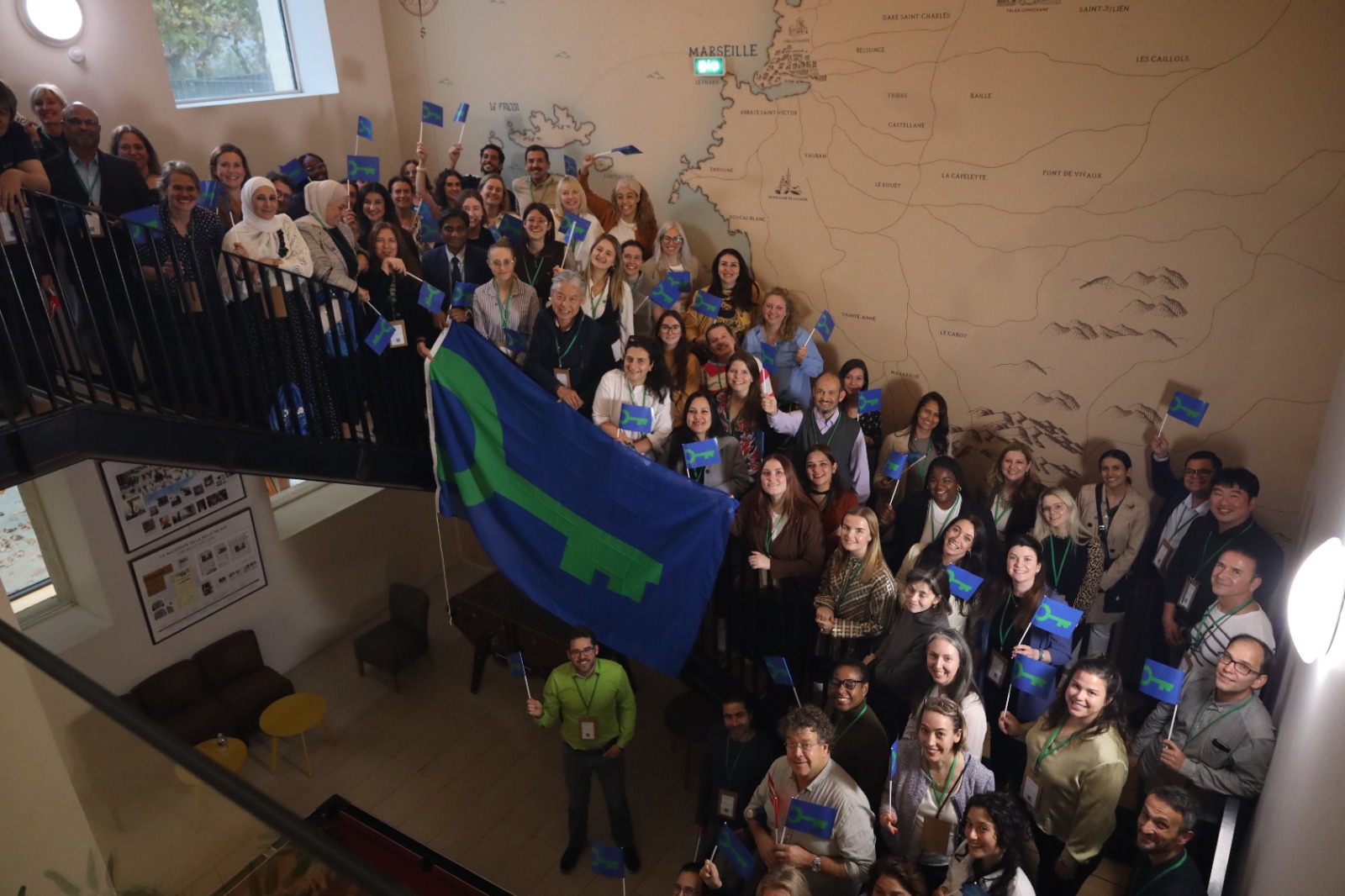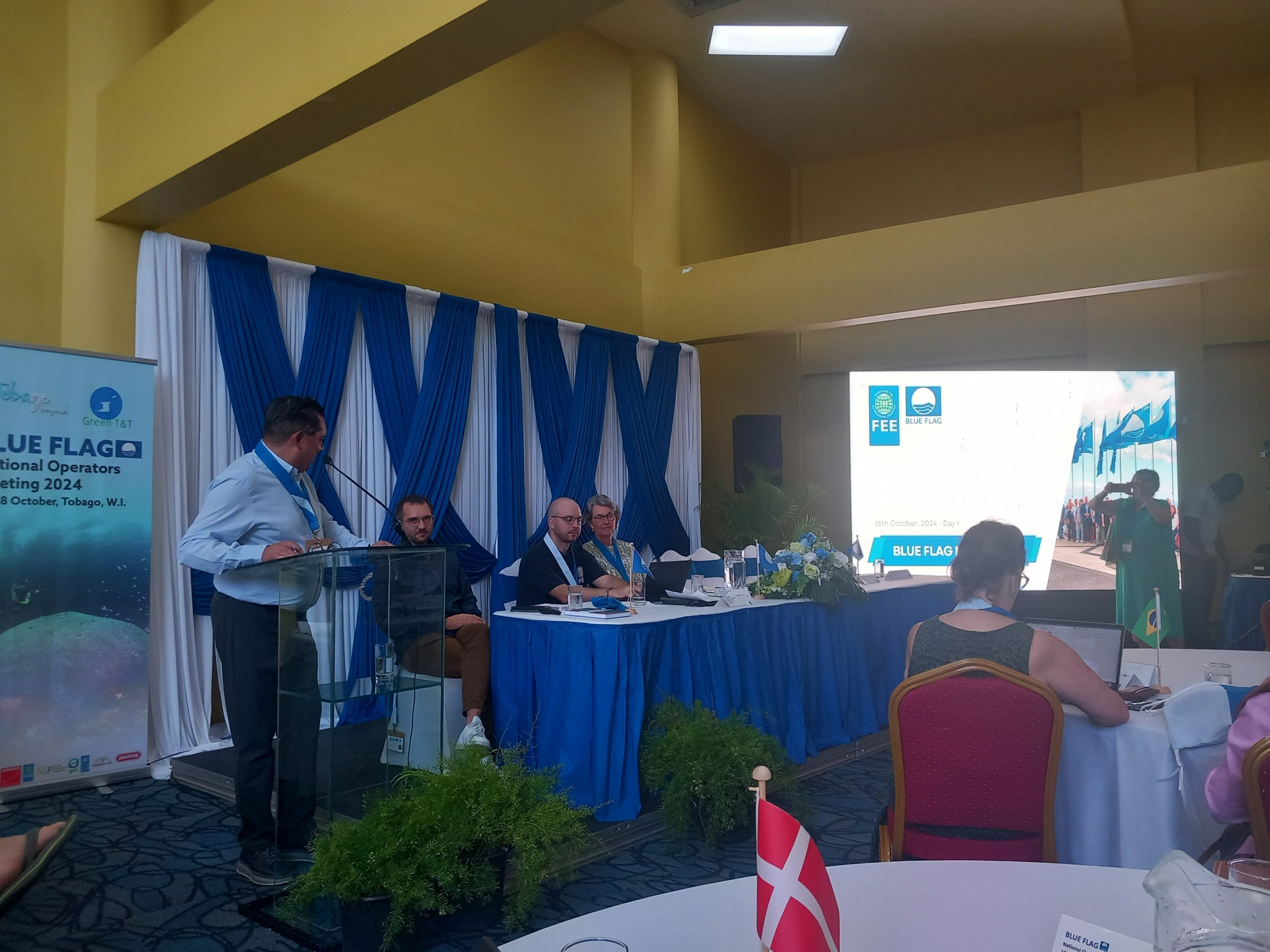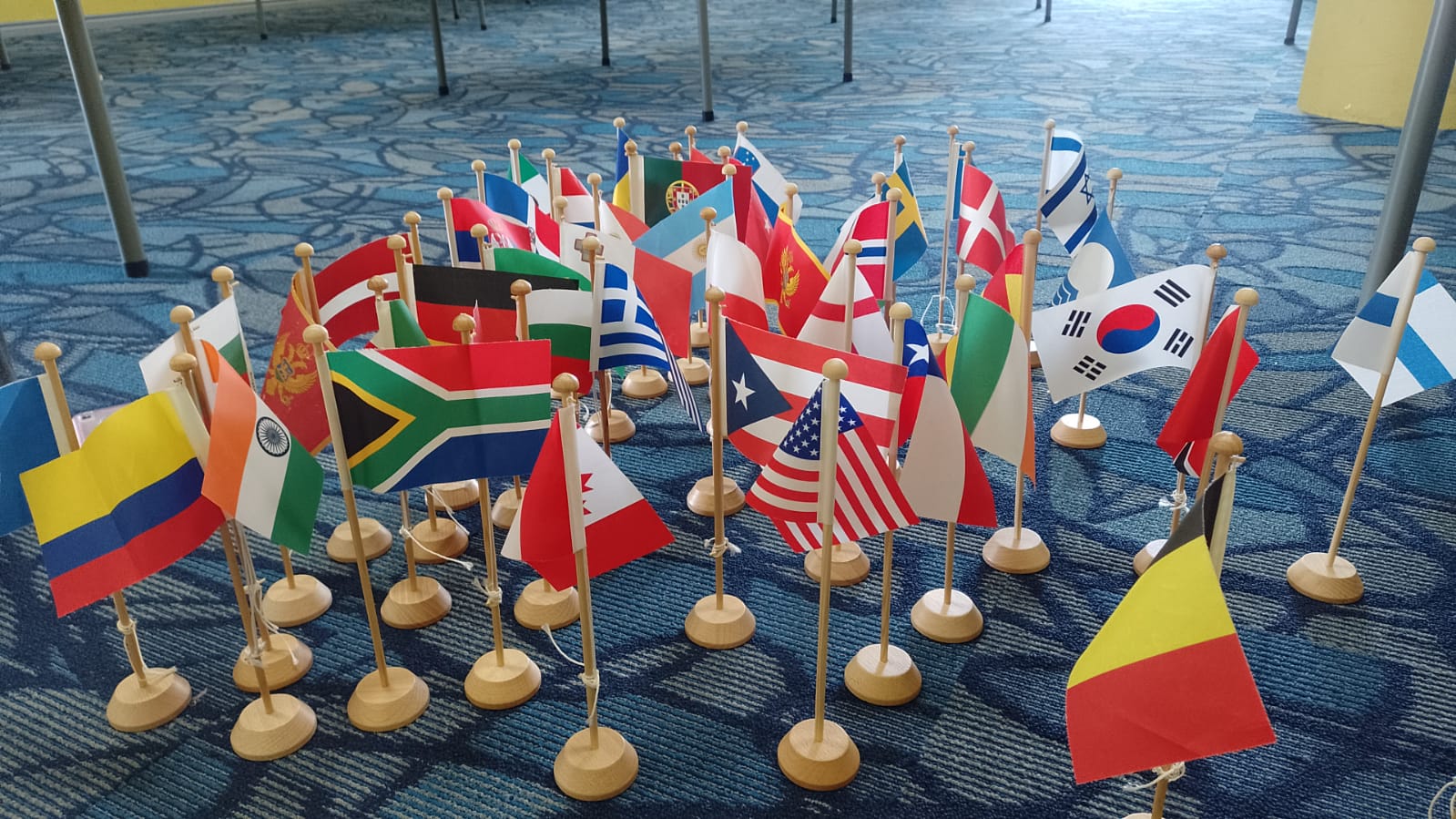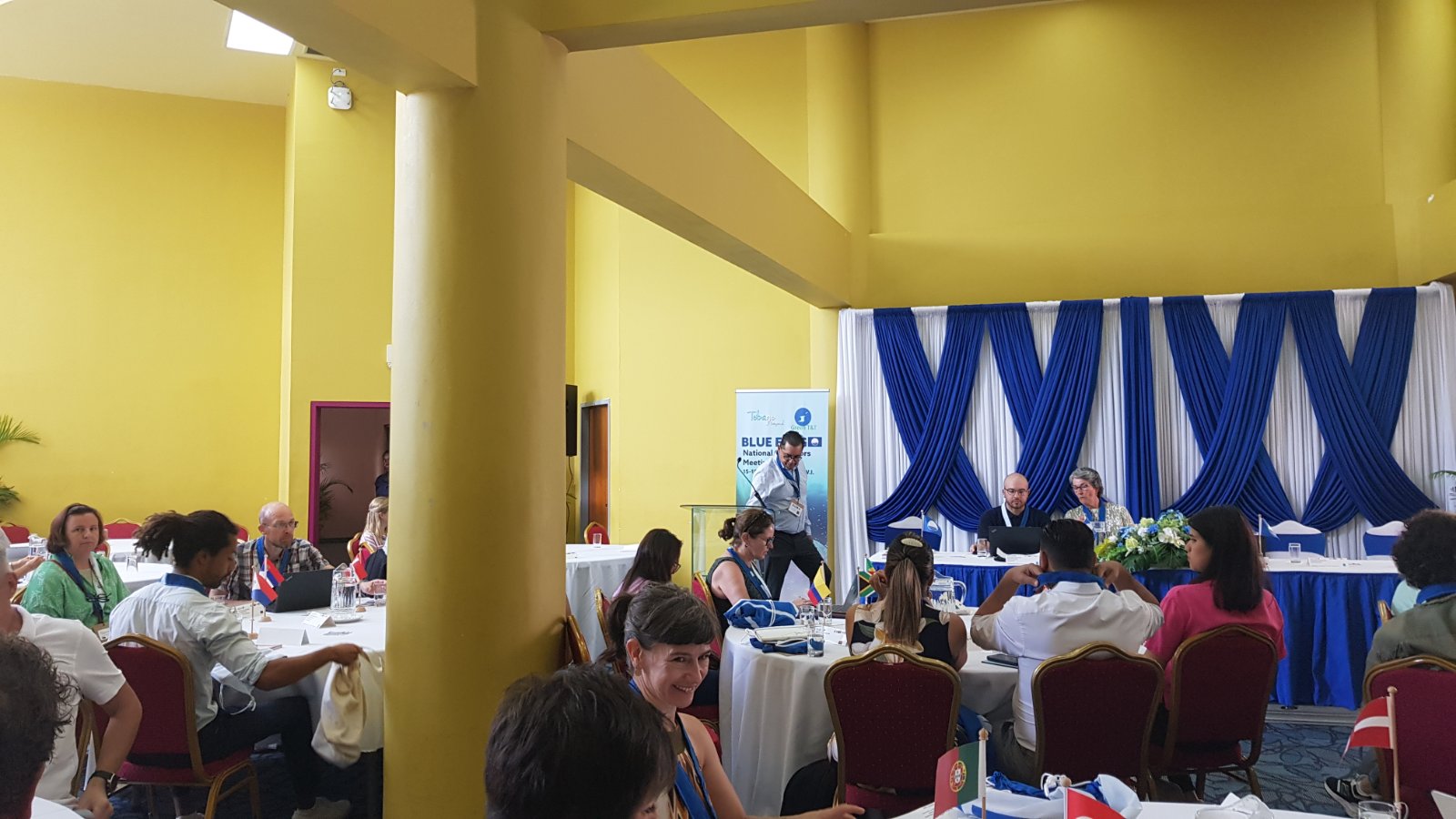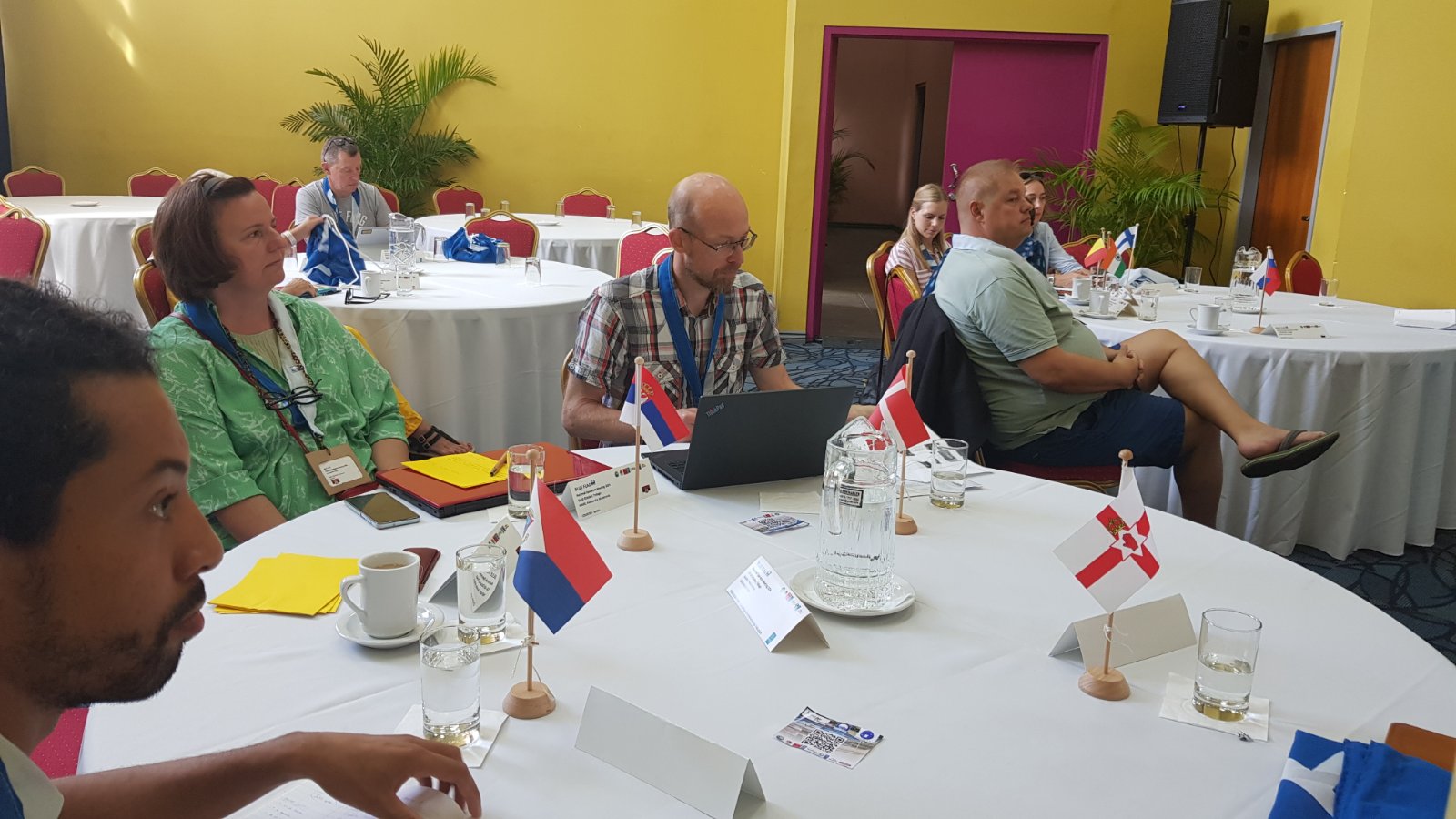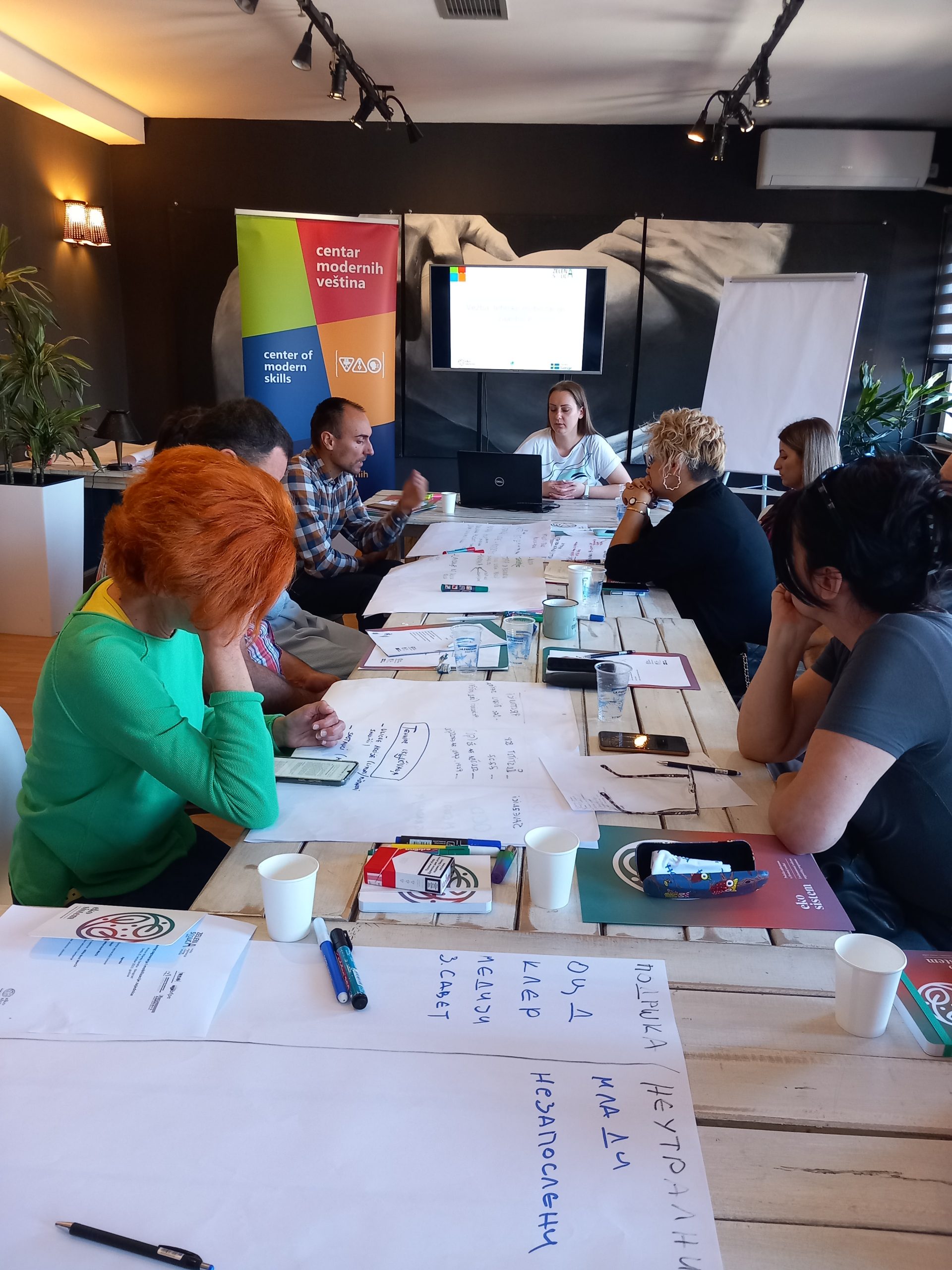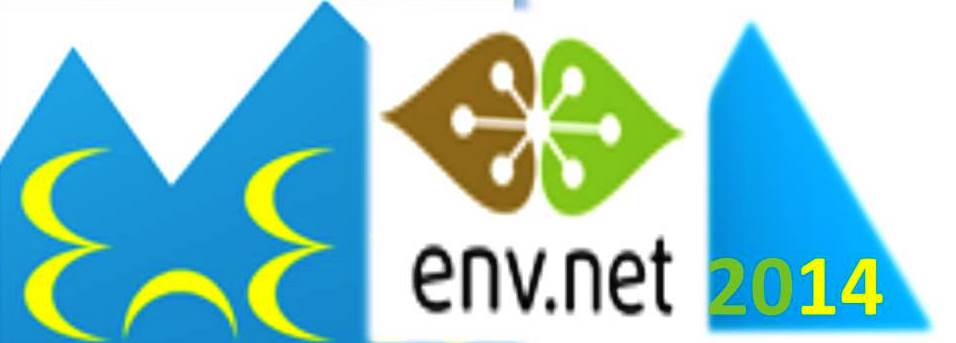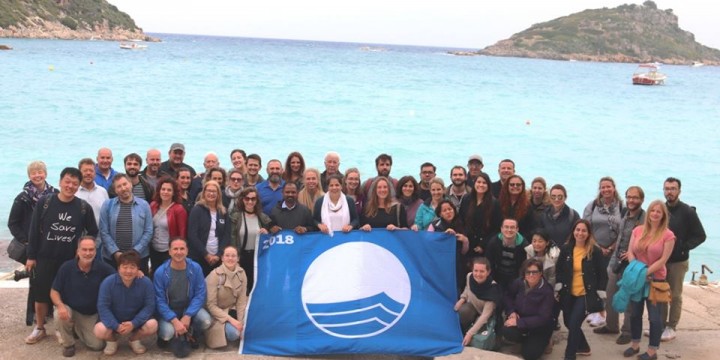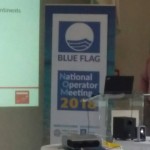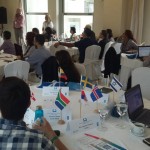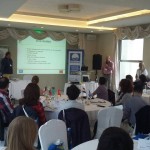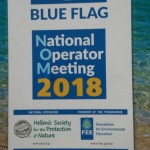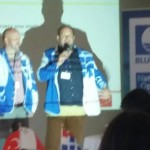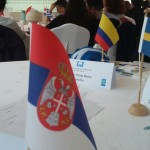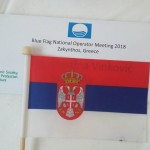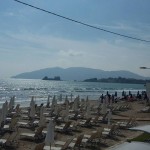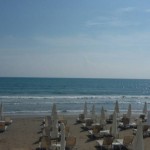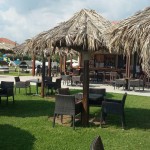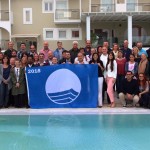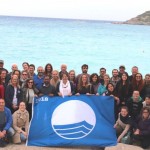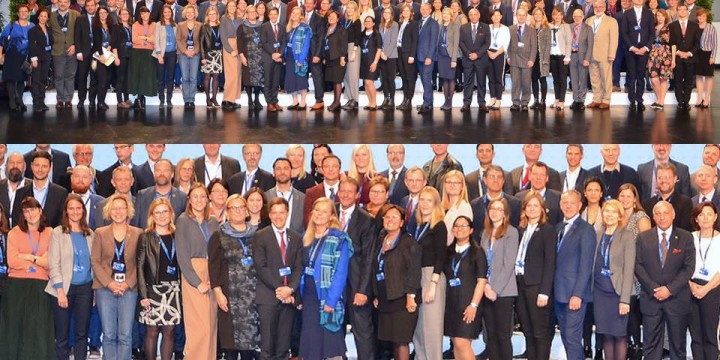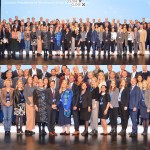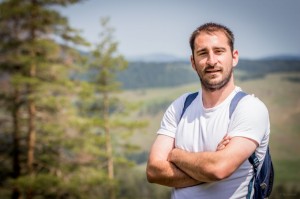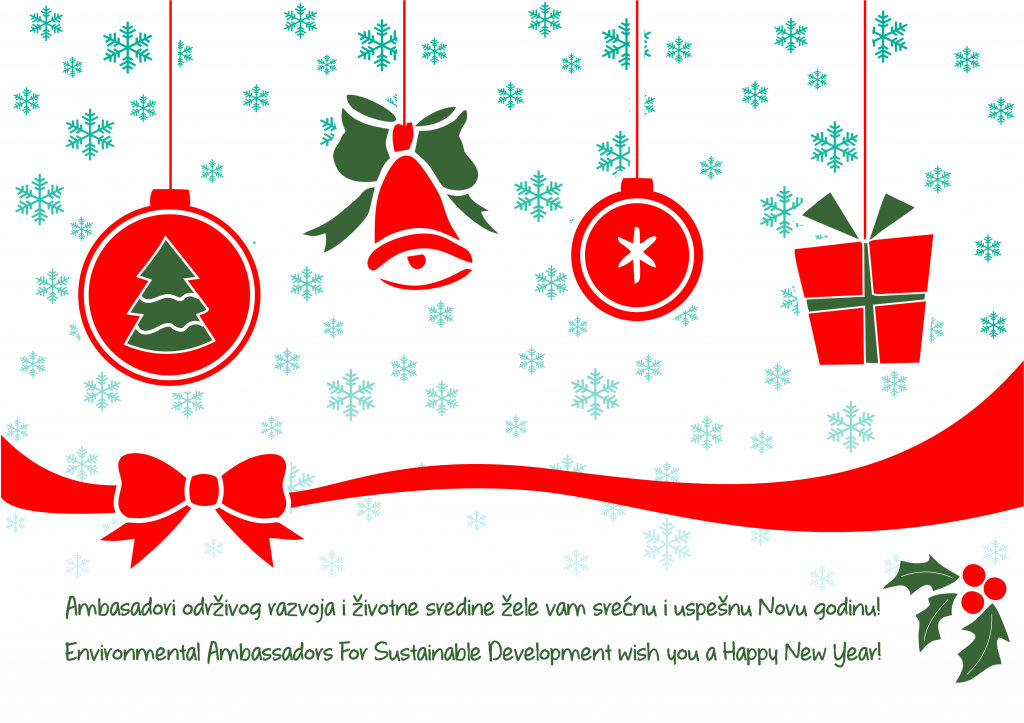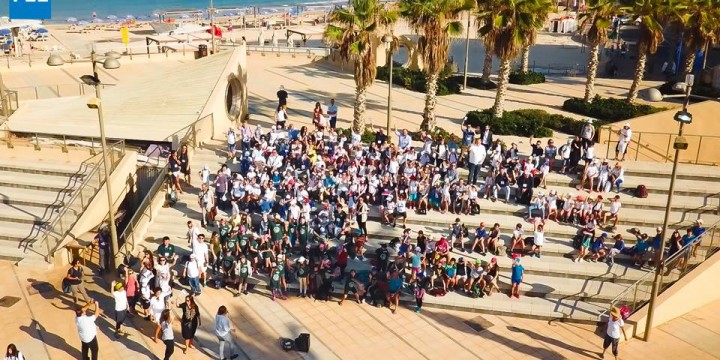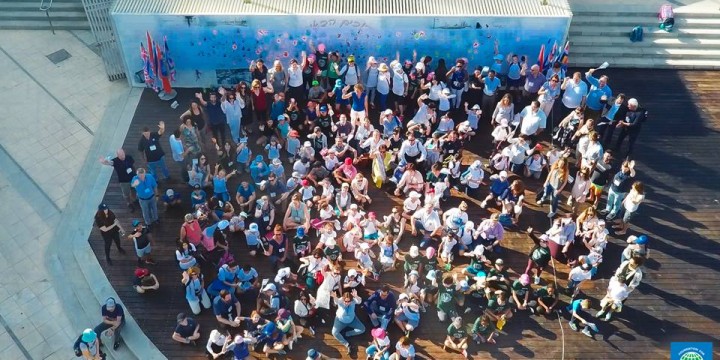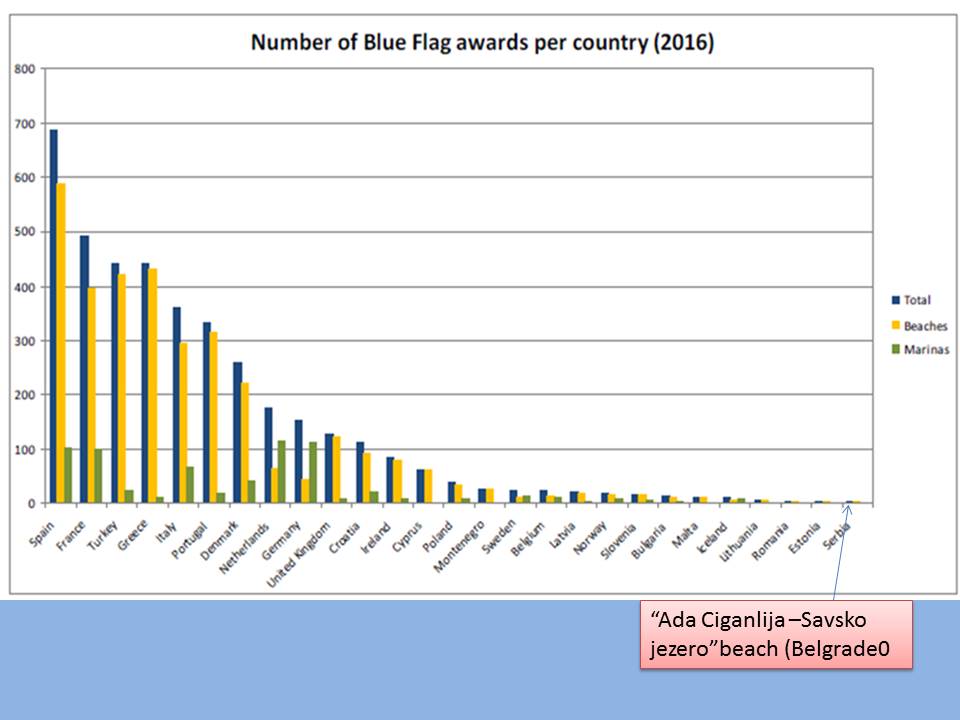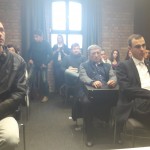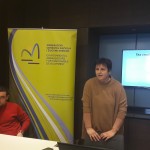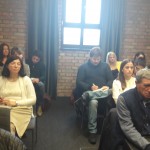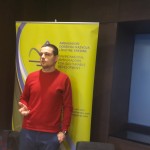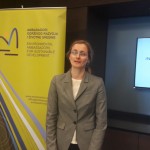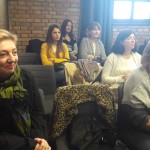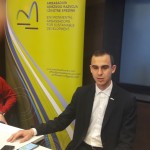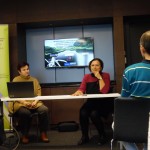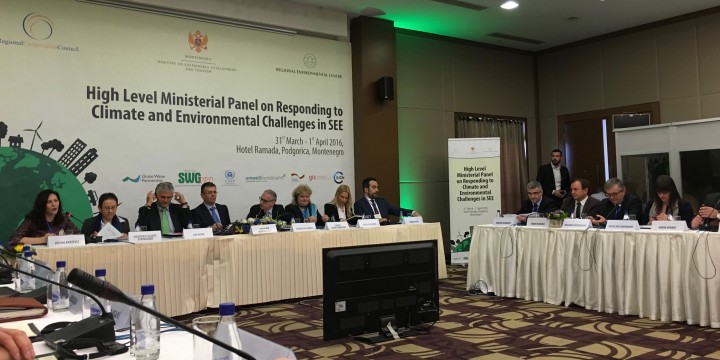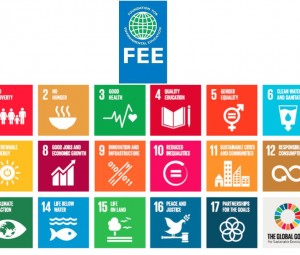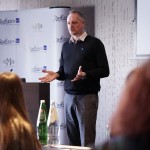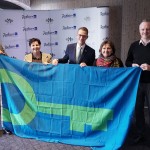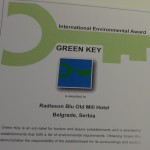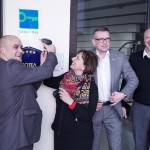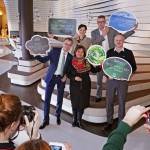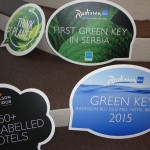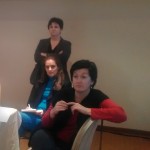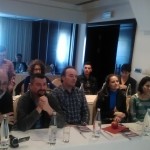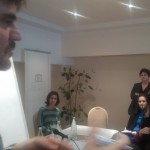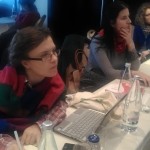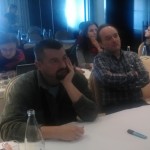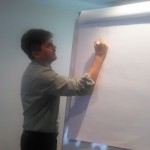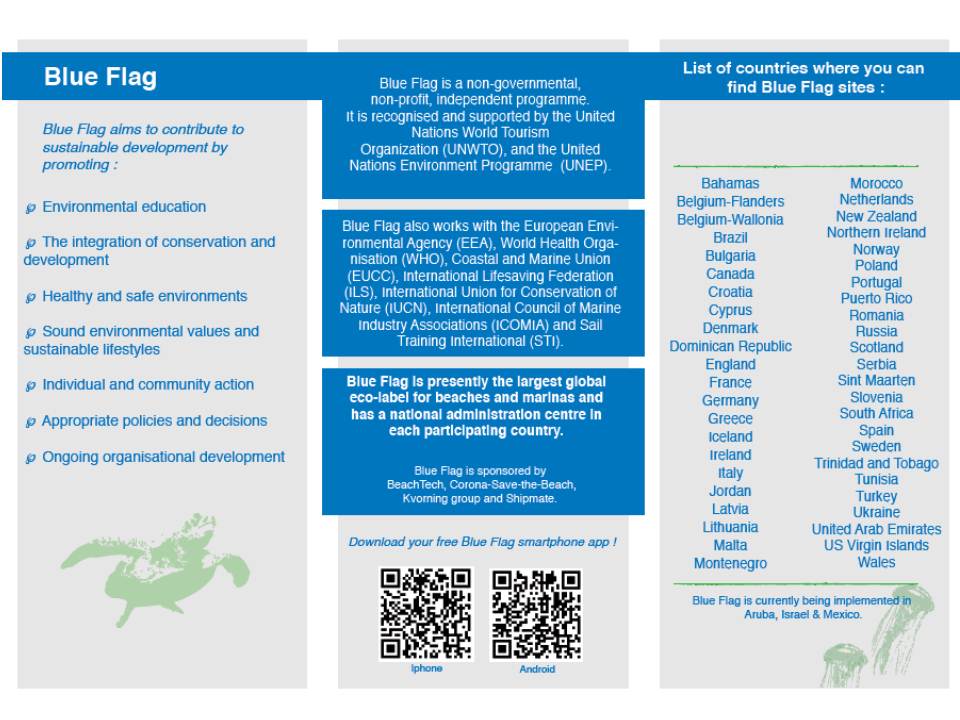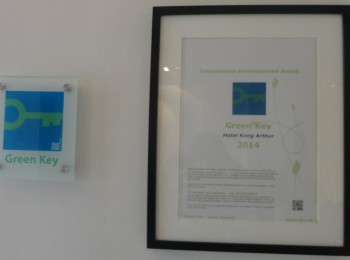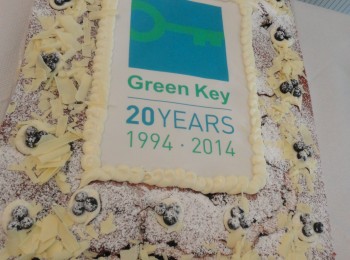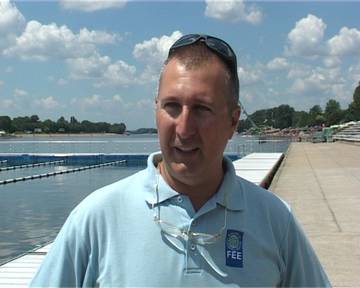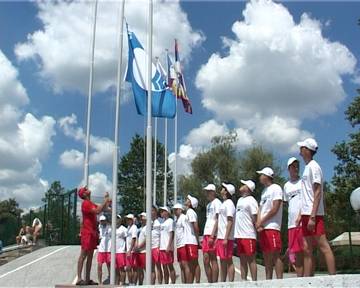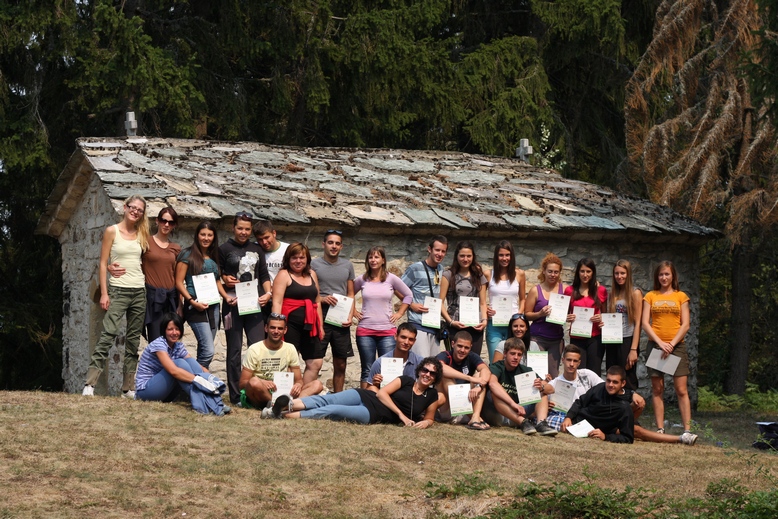Green Key National Operator Meeting 4 – 7 November 2025 in Marseille, France
The Green Key National Operator Meeting was held from November 4 to 7, 2025, in Marseille, France, organized by Teragir, the national operator of the Green Key program in France. It was an opportunity to hear about new certification processes, including an overview, status, and next steps, as well as the engagement of Auditors, and to exchange information about the setup of FEE’s Certification Body. The main interest was in the expectation about the roles of National Operators in the new certification system.
The new criteria are under final development, so one session was dedicated to Criteria revision (status and next steps, definition of category, scope, national adaptation, etc.). Online application/audit tool and FEE’s engagement within Tourism Sustainability Certifications Alliance (TSCA) are also presented and discussed. Presentation of various online application/audit tools was done in break-out groups, so participants were informed about the Phases tool (done by Helen from Belgium), BeCause tool (done by Louise from England) and Dutch tool (done by Laska from the Netherlands).
International hotel chain and tour operator partners to the Green Key: Accor Hotels, BWH Hotels, Radisson Hotel Group and Jet2holidays had the opportunity to present their work on sustainability and to receive proposals for possible improvement.
In four parallel sessions with National Operators, participants chose the theme of their interest and discussed:
- Preparing the work for future sustainability in the hospitality industry: vocational training about sustainability in hospitality schools, and how can we make hotel chains advertise for these skills? Exchange of experiences about the cooperation with hospitality schools.
- Green Key in a new country, about the experiences of starting the Green Key programme in a new country. Exchange of experiences among new National Operators.
- Green Key communication: how to successfully communicate about Green Key in the media to increase awareness about Green Key. Exchange of experiences about successful Green Key communication.
- National seminars: how to hold Green Key seminars and how to make them successful. Exchange of experiences on organising Green Key seminars.
Corporate partners also had the opportunity to present their work: Beirholm, Benerg, Divello, Diversey, Ecolab, Semaphore, Werner-Mertz.
Before the evaluation and closing, a discussion was held in five breakout groups regarding the types of tools we need, how we can share materials, and what you expect from Green Key International-GKI.
The meeting concluded with high expectations for 2026, including new criteria, a new certification system, and the hope for new establishments that recognize sustainability does not begin tomorrow, but rather from today.
Blue Flag NOM 2024 October 15-18, Tobago
The Blue Flag NOM was held in Scarborough, Tobago, from 15 to 18 October 2024. That was a great opportunity for BF operators around the world to meet and exchange the latest progress in implementing the BF program in their own countries. In total 45 participants, national operators of the program, from around 40 countries around the world, FEE Global representatives, and a hosting organization from Trinidad & Tobago number more than 60 participants, who had the opportunity to hear about updates from FEE, done by Lesley Jones, President of FEE; Past Year´s Highlights From Blue Flag International; the Blue Flag Action Plan 2024-2025 and among other, the big picture: Blue Flag upcoming challenges towards certification requirements: Green Claims, Ecolabels, and Substantiation. Discussion was open for further development on the detailed picture: ECGT Directive, Accreditation, and Process Review, what does it mean for the Blue Flag program? The discussion was also launched on draft new beach criteria and draft new sail training vessels criteria.
Communication and advocacy workshop in relation to the Blue Flag certification requirements was done, as well as a presentation of “Semaphore”, a historical partner to the BF program and another partner “Pick A Pier”.
Presentations were done by colleagues from Latvia: EU Beach SOS Project, Colombia: Alignment With National Public Beach Programme and India: Blue Flag as an enabling programme for Local Communities
The presentation was prepared by the Secondary Schools Tourism Club.
A stakeholder Knowledge Sharing Session was facilitated where the CSO-Government-Private Sector Policy Knowledge Fair presented how to amplify and improve global and national policy engagement regarding environmental sustainability and promote cooperative decision-making
CLIMATE CHANGE – Session one
BIODIVERSITY – Session two
POLLUTION- Session three
Blue Flag SIDS Strategic Meeting at the National Level was organized. The THA, Private Sector and Civil Society Organization (CSO) counterparts have reached a consensus on advancing the Blue Flag program in Tobago that aligns seamlessly with THA’s existing policies, contributes towards achieving Sustainable Development Goals (SDG), fortifies the blue economy and is in full accord with FEE’s GAIA 20:30 Strategy.
Desired Output: Preliminary Blue Flag implementation framework recommendations for future collaboration that synergize with THA’s policy direction and uphold solidarity with SDG targets, contributing to the region’s blue economy and embodying principles consistent with FEE’s GAIA 20:30 Strategy.
FEE Regional Development in the Caribbean/Americas Region, Panel Discussion, facilitated by FEE.
The FEE’t for Purpose process, initiated in October 2023, aims to enhance FEE’s effectiveness and align it with strategic goals. Six working groups were formed to address topics related to FEE membership and financial systems. In early 2024, multiple sessions focused on membership structure, programme quality standards, and financial systems. By mid-2024, further meetings refined these discussions, with agreed outcomes such as voting rights. Future focus areas include developing criteria for full members running one programme, managing programmes across countries, consortium membership, affiliate membership, standardizing membership agreements, and streamlining the membership application process. These efforts aim to ensure clarity and consistency in FEE’s membership structures and standards.
Additionally, and as part of this process, FEE is researching ways to expand its impact through its programmes in Caribbean countries without a resident NGO capable of running the programme. It would like to do so by leveraging the combined expertise and established networks of FEE. Building on the knowledge and recommendations of regional actors and partners, such as the Caribbean Tourism Organisation (CTO) and Caribbean Alliance for Sustainable Tourism (CAST), the Association of Caribbean States (ACS), the Caribbean Energy Chamber and the University of the West Indies (UWI) – it would ensure a future robust framework and necessary buy-in for successful implementation. Some countries of interest are Dominica, Grenada, Saint Lucia, Saint Vincent and the Grenadines, and Suriname.
Desired Outputs: Recommendations from the partners for a preliminary FEE Greater Caribbean implementation framework for future collaboration that synergizes with its Caribbean counterparts and aligns with FEE’s GAIA 20:30 Strategy.
ECO-SYSTEM AND “GREEN CHAIR”: PROJECT “CITIES READY FOR CLIMATE CHANGE”
Consultations and a workshop for the preparation of the proposal of the Strategic Plan of the “Green Chair” network were organized within the third cycle of the EKO-SYSTEM support program “Cities Ready for Climate Change”, in October 2023. The lead partner is the Centre for Modern Skills, and the partners are the Aarhus Centre Novi Sad, the BFPE Foundation for Responsible Society and the Environmental Ambassadors for Sustainable Development. The project aimed to improve further the work and strengthen the “Green Chair” network. The topic of the project is adaptation to climate change at the local level.
During the implementation of the project, another activity was consultations held with representatives of local communities: Kruševac, Pirot, Požega, Sremska Mitrovica and Subotica, to encourage advocacy at the local level, related to climate change.
The representative of the Environmental Ambassadors for Sustainable Development, Aleksandra Mladenovic, supported the preparation of a model of a local initiative for the city of Kruševac, which contains measures to mitigate climate change at the local level. As part of the mentoring work, two online thematic meetings were held, with the team for drafting a local initiative. It includes the concept of measures that will be proposed to the local self-government unit. The mentoring work resulted in greater cohesion of the local team, strengthening mutual communication and reaching an agreement on joint climate action at the local level.
Proposal of measures and recommendations for adaptation to climate change and mitigation of the impact of climate change, for local self-government units
General Measures
1. Include a set of measures and recommendations for adaptation to climate change in the development of spatial planning and strategic documents, Development Plans, and Local Environmental Action Plans.
2. Building, strengthening and improving capacities at the municipal level to a) adapt to climate change to introduce adequate measures into policies and decision-making processes at the local level, b) plan and implementation of climate policies, as well as modeling GHG emissions at the local level, and c) data collection, analysis and use (with a focus on the use of GIS), especially those related to river basins, flood maps, water source protection zones, erosion risk zones, etc.
3. Organizing trainings and seminars on available funds for the implementation of projects directly related to climate change (renewable sources, energy efficiency), joint training and seminars to strengthen institutional capacities and improve multisectoral cooperation.
4. Preparation of educational manuals to improve the understanding of the vulnerability of certain sectors to the impacts of climate change and to build resilience and adaptive capacity of the local community.
5. In cooperation with higher levels of government, strengthen the capacities (technical and human) of protection and rescue services at the local level to undertake organized and effective protection and rescue measures.
6. Establishment of an early warning system for the management of extreme climatic events (for all types of climate hazards: floods, droughts, landslides, forest fires, etc.).
7. Use of digital technologies to monitor extreme climatological situations (e.g. drone monitoring, real-time monitoring, etc.).
8. Establish a single database on droughts, floods and landslides and their damage.
9. Adapt Local Fire Protection Plans in the context of adaptation to climate change; ensure reserve amounts of water, by building or installing water tanks, etc. for effective fire protection (especially in open spaces).
Measures by sector
– Agriculture
1. To improve the knowledge of farmers about the impacts of climate change and to introduce them to examples of good practice from the countries of the European Union, but also from the surrounding countries.
2. In organized agricultural production, establish a hail protection system.
3. Improve irrigation infrastructure and ensure sufficient water for irrigation of arable land, in particular for agricultural production that takes place outdoors and is therefore exposed to weather conditions.
4. Receive and capsulate large waters when they exist and make them available in conditions of need through the construction of artificial reservoirs, which, in addition to the production of electricity, also create conditions for the development of tourism, provide flood protection of the downstream area and provides water for irrigation.
5. Implement measures to improve cooling in agriculture (construction of shelter from the sun, adequate accommodation, installation of fans and sprinklers).
6. Subsidize small agricultural producers, especially in the context of reduced incomes and agricultural yields during dry periods.
7. In agriculture, encourage the use of adequate varieties that are more tolerant to heat and drought, change crop patterns, target land management practices, farm structure, and adaptive capacity of farmers.
8. Application of measures aimed at preventing plant diseases, soil heating, etc.
9. Create the conditions and strengthen the awareness of farmers for adequate management of agricultural waste to reduce emissions from methane.
– Forestry
1. Maximize illegal logging control and implement forest health protection measures (occurrence of pathogenic fungi, occurrence of forest fires, define measures in response to snowstorms, wind gusts, frosts, etc.).
2. Intensify afforestation in landslide-prone areas and land erosion to reduce the risk of new landslides.
3. Establish comprehensive monitoring of areas at risk of erosion and landslides, with the preparation of plans and maps and action plans for prevention and control over their implementation.
– Civil engineering
1. To reduce the risk of landslides, establish continuous monitoring and documentation of illegal and unplanned construction of residential and other buildings and consistently implement regulations governing construction conditions.
– Water management
1. Plan the construction of a system for connection to the sewage network and wastewater treatment plants
2. Provide for continued investment in preventive protection and rescue measures, as well as full coordination with all actors having an impact on floods.
3. Procurement of adequate material and technical means and equipment is important for the provision and organization of all measures that affect the degree of vulnerability of people and material goods from floods.
4. To ensure timely and complete information to citizens about all measures and actions taken by the municipality to reduce the risk of floods, as well as to raise awareness of citizens about the possible consequences of floods.
5. Establishment of uniform inter-municipal and regional flood protection measures and a unified system of warning and notifying the competent structures of the upcoming danger, as well as the need to build a common (single) management system for hydropower facilities that have a regional character.
– Nature protection
1. Application of Nature Based Solutions, such as the maintenance and restoration of natural aquatic ecosystems (e.g. rivers, connecting river channels and meanders), afforestation, restoration and maintenance of grasslands, buffer zones, adequate land management, etc., because nature-based measures are more effective than technical infrastructure for flood protection (embankments, canals, etc.), both in environmental and economic terms.
– Waste management
1. Implement measures to reduce the waste that is deposited and adequate collection of municipal waste (collection networks in rural areas, construction of recycling yards, procurement of specialized equipment for waste collection, as well as activities to educate and raise awareness among the local population about the importance of this topic).
-Gender equality and human rights
1. At the local level, work on linking gender equality and climate change, as well as the realization of equal rights for all, especially vulnerable groups (e.g., youth, Roma, women, persons with special needs…), by implementing climate change mitigation measures.
ENVIRONMENT TO EUROPE – EnE
This project/process present different phases towards European values, as well as globally values promoted through Multilateral Environmental Agreements. Started to raise awareness of the importance of the UNECE Ministerial “Environment for Europe” Belgrade 2007 Conference, and further continuously is mobilizing interesting parties in Serbia and Region to catalyze environmental and sustainable development.
Within “Environment to Europe” Process, EASD actively participate and organize different supporting activities in different related thematic areas, like sustainable consumption and production, efficient resource use, chemicals, eco-consumers protection, participation at global, EC, regional and with papers at different conferences, etc. Regional cohesion projects supported Environment to Europe process.
__________________________________________________
EEB 2022 ANNUAL CONFERENCE – “Boosting the Deal for a Greener Europe in Turbulent Times”
Study visit to Grenoble – the Green Capital of Europe
EnE22, June 2022 – UNEP@50 and World Environment Day
December 2021 – Climate Pact for Serbia: Snapshot targeted rehearsal of country’s obligations in climate action….
Virtual tour on the experience from Italian practices in circular economy
Recap the moments from EnE19/ENV.net Conference
WEBINAR – Regional Forum of Sustainable Development (RFSD) for the UNECE Region : we participate
EASD full member in European Environmental Bureau – honor and challenge
The ESDN Conference 2018 – we participate ; We participate – ESDN Conference 2018, “Stakeholder-Policy Cooperation in the Age of the SDGs: What new approaches are required to be successful?”, Vienna (Austria), 1-2 October, 2018
Join us for June 5th: Conference Agenda is available
6th UN regional meeting on SAICM, Poland, February 2018: we participate
February 2018: Call for participation for EnE18: Nature protection – Nature-Responsive Development
February 2018: ENV.net 3 Kick-off Meeting in Tirana
November 2017: EASD participate: Summit to Plan the End of Amalgam in Europe 2017– November 20-21, Berlin
September 2017: “Make Mercury History” – EASD participated at Minamata COP1 in Geneva
July 2017: Civil Society Forum in Trieste, 11-12 July 2017 – we (EASD) participate ; Good signal: Serbia gets (again) separate Ministry of environmental protection
June 2017: Climate Change Education for Sustainable Development
April 2017: Call: The Thirteenth Regional Conference ”Environment to Europe – EnE17″, June 5th 2017, Belgrade
February 2017: “EnE17 – The 13th Regional Conference Environment to Europe” announcement: Climate Change Education
June 2016: Agenda , EnE16-ENV.net Zbornik radova/Proceedings of papers ; WED Messages from Serbia: 12th Regional Conference “Environment to Europe” , REPORT FROM EnE16-ENV.net, BELGRADE, SERBIA
January 2016 – Save the date and participate: June 6, 2016 – Environment to Europe Conference
June 5, 2015 – 2015 Conference, Information, Proc. of papers
We participate at European Green Week
December 2014 – Thematic Publication “Environment to Europe” ( Tematski zbornik radova “Životna sredina ka Evropi”)
June 5, 2014 – ENV.net multi-stakeholder Conference on Chapter 27: about 200 participants , 2014 Conference
Agenda for EnE14/ENV.net Conference “Environment to Europe”, June 5, 2014 in SCC – opening at 10:00
Invitation for EnE14-ENV.net Conference, June 5 – 2014 in Belgrade
EnE14 / ENV.net Conference will be held on June 5, 2014 in Belgrade (it will 10th regional conference!). Thematic focus: Chapter 27. Reserve the date! More information soon. Follow the updated information related to event.
__________________________________________________
EnE13 – Environment to Europe Conference on June 10, 2013 is focused on local environment. The main messages from this participatory ENV.net event are: environmental sector activities should be knowledge based, and education for environment and sustainable development should be priority. Capacities and continuity is very important for inclusion environment in other sectoral policies. Conference is institutionally supported by Ministry of Energy, Development and Environmental Protection and Ministry of Natural Resources, Mining and Spatial Planning, as well as National Commission for UNESCO. This Conference is UNEP WED event.
| 2013 | EnE13 | ENV.net Roundtable Focus: Local Environment | Agenda, Zbornik radova EnE13 – Zivotna sredina ka Evropi – Papers Proceedings; Minutes; More than 120 participants at EnE13 conference/ENV.net Roundtable: 10 June, 2013 in Belgrade |
Snapshots from the previous EnE “Environment to Europe” Conferences:
| Thematic focus | Published materials | ||
| 2005 | EnE05 | Thematic focus : The importance of Environmental Sector in EU Integration process | Detailed Agenda published.CD Proceedings of Papers published. Book “Sustainable Development and Environment towards Europe in 95+ steps”, by A.Mihajlov, published in Serbian |
| 2006 | EnE06 | European/developed countries values in environmental and related issues; lessons learned. At the same time, the Civil Society Forum EfE07 Meeting towards UN Pan-European Ministerial Conference Belgrade 2007 “Environment for Europe” held. | Detailed Agenda published.CD Proceedings of Papers published. Book “Sustainable Sustainable Development and Environment Towards Europe in 95+ Steps”, by A.Mihajlov, published in English |
| 2007 | EnE07 | Dedicated to contribute to upcoming UNECE “Environment for Europe” (2007, Belgrade) Pan-European Ministerial Conference ; NGO Declaration on Environmental Cohesion of Western Balkan agreed | Detailed Agenda published.CD Proceedings of Papers published. |
| 2008 | EnE08 | Youth and Vulnerable Groups in Environmental EU Accession | Detailed Agenda published. EnE08 Zbornik radova 4. regionalne Konferencije „Zivotna sredina ka Evropi“-sadrzaj published. |
| 2009 | EnE09 | Climate Change and Sustainable Tourism Conference | Detailed Agenda published (agenda EnE09) ; CD Proceedings of Papers published. |
| 2010 | EnE10 | Green Education and Green Economy | Detailed Agenda published ( Agenda EnE10 Konferencije ); CD Proceedings of Papers published. |
| 2011 | EnE11 | Rural and Mountain Sustainable Development | Detailed Agenda published (agenda_ene11) CD Proceedings of Papers published. Publication with selected paper published. |
| 2012 | EnE12 | Learning event for Rio=20 preparation – Green Economy and Governance for Sustainable Development | Detailed Agenda published ( Agenda EnE12 )
CD Proceedings of Papers published. UNDP/UNEP Green Economy Study published http://sustainabledevelopment.un.org/content/documents/984serbia.pdf |
Blue Flag NOM in Greece: EASD participate
October 2018: The Blue Flag National Operator Meeting 2018 has officially started with its opening ceremony in the presence of the Greek Minister for Tourism. Two days meeting of Blue Flag National Operators all over the world, raise the issue how to deal with obstacles and how to be more active in protected beaches,marinas and sustainable tourism boats. EASD representative at Meeting is Martina Vinkovic.
To note, in Serbia we have only one Blue Flag site: Beach Ada Ciganlija – Savsko jezero.
The ESDN Conference 2018 – we participate
The ESDN Conference 2018 took place on 1-2 October 2018 in Vienna, Austria, at the Austria Center Vienna. It was organized by the ESDN in cooperation with the Austrian Federal Ministry of Sustainability and Tourism as an official event of the incoming Austrian EU Presidency. The Conference brought ring together policymakers and experts from different stakeholder groups from all over Europe.
EASD Honorable President participate on this event.
Pavle Pavlović – National Coordinator for GREEN KEY Project
Pavle Pavlović is back to Environmental Ambassadors for Sustainable Development as the National Coordinator for GREEN KEY Project. Welcome back and – we wish success!
Pavle is a professional tourist guide who graduated from the College of Tourism, in Belgrade where he lives. He has been working with leading tourism and sustainable development organisations in the region for more than ten years. Through his work, studies and scientific articles, he is constantly trying to connect tourism with environmental protection. Beside tourist guide licence he achieved in 2015, he owns a mountain leader (UIAA) licence as well.
2018!…..With activity highlights from 2017!
Activity important milestones in 2017
EASD activities are focused to 3 thematic groups:
- Promoting sustainable development; Agenda 2030 and SDGs;
- Environment and Natural Resources; Climate action; Advancing policy integration ; Advancing science/technology/innovation integration; Environmental Security and Justice;
- Building partnerships; Raising awareness on emerging issues; Working with civil society and non-state actors
Promoting sustainable development; Agenda 2030 and SDGs:
Initiative: End mercury use in dentistry by 2022, civil society challenge European Union
EASD participate at UNEA3, Nairobi, Nov-Dec 2017
EASD participate: Summit to Plan the End of Amalgam in Europe 2017– November 20-21, Berlin
EASD participate: IPEN Regional meeting, Prague 16-20 October 2014
“Make Mercury History” – EASD participated at Minamata COP1 in Geneva
Climate Change Education for Sustainable Development
2017 International Year of Sustainable Tourism for Development
EASD participate at 2017 Vienna UN Conference – Implementing the 2030 Agenda
Environment and Natural Resources; Climate action; Advancing policy integration ; Advancing science/technology/innovation integration; Environmental Security and Justice:
Initiative: End mercury use in dentistry by 2022, civil society challenge European Union
Good signal: Serbia gets (again) separate Ministry of environmental protection
Climate Change Education for Sustainable Development
“EnE17 – The 13th Regional Conference Environment to Europe” announcement: Climate Change Education
Building partnerships; Raising awareness on emerging issues; Working with civil society and non-state actors:
Initiative: End mercury use in dentistry by 2022, civil society challenge European Union
EASD participate at UNEA3, Nairobi, Nov-Dec 2017
EASD participate at 2017 Blue Flag National Operator Meeting
Eko-paket – Eco-Schools annual conference for the school year 2017/2018
EASD participate: IPEN Regional meeting, Prague 16-20 October 2014
EASD become the Member of the Western Balkans Youth Cooperation Platform!
Civil Society Forum in Trieste, 11-12 July 2017 – we (EASD) participate
Good signal: Serbia gets (again) separate Ministry of environmental protection
Serbia: Blue Flag 2017 Ceremony at beach on “Belgrade Sea”
EnE17 Conference and Panel in Media
Mercury Initial Assessment in the Republic of Serbia Workshop – we participate
EASD participate at 2017 Blue Flag National Operator Meeting
The Blue Flag NOM 2017 was held in Netanya, Israel on October 23-24, 2017 , organised by EcoOcean, NO from host country. Meeting was chaired by Lourdes Diaz Colón, member of the FEE Board of Directors, with political responsibility for the Blue Flag programme. Great official opening ceremony was on the beach, with children of Netanya holding flags of countries participated.
Attention was at programme activities and developments, as well as sustainable boating tourism operators criteria development and new Blue Flag evaluation requests, presented by Johann Durand.
How to market the Blue Flag programme was presented by Nissim Douek, PR specialist.
Compliance with EU Wastewater Directive and crosscutting issue between this and EU Bathing water Directive is presented and discussed.
Also, Blue Flag Mediterranean week – how to reproduce it as a way for Blue Flag to contribute to the Sustainable Development Goals, presented by Orly Babitsky, initiated discussion related planning other regional Blue Flag weeks in 2018 around the theme “caring for the Oceans/Seas that unites us”. Presentation about FEE and the Sustainable Development Goals was delivered by Lesley Jones. Blue Flag 30th anniversary celebration and Best practises session was very interesting, in particular Malcolm Powell’s a birthday celebration story: The European Blue Flag transitioning to the International Blue Flag in 2001.
National Operators forum: networking and discussions amongst National Operators is always the value of NOMs.
Blue Flag Sponsors (Semaphore and AccessRec ) also participated.
Blue Flag for beaches and marinas(and Green Key) among EEA TOUERM (Tourism and Environment Reporting Mechanism) Indicators
European Environmental Agency (2016, 2017) is developing TOUERM (Tourism and Environment Reporting Mechanism) Indicators (also look at Report)
25 indicators were identified and “prioritized” according: data availability, consolidated methodology, processing requirements feasible in the frame of the project, policy relevance, clarity and message) and grouped within 5 groups: 1. Driver indicators, 2. Pressure indicators, 3.State indicators, 4. Impact indicators, and 5. Response indicators.
Response indicators are:
R1-Percentage of destination that is designated for protection
R2 –Tourism enterprises using environmental certification/labeling (EASD Note: among them is GREEN KEY)
R3 – Blue Flags for beaches and marinas
Until now, Serbia have 1 beach with Blue Flag and 2 hotels with Green key.
Athens 2017: Green Key National Operator Meeting
Green Key National Operators from 39 countries as well as Green Key’s corporate partners participated in the Green Key National Operator Meeting on 27-30 March 2017 in Athens. This year Green Key National Operator Meeting is dedicated to the International Year of Sustainable Tourism for Development.

The Green Key National Operator Meeting is an annual event where the status and developments of the Green Key programme are discussed. As the UN designated 2017 as the International Year of Sustainable Tourism for Development, the NOM was dedicated to the celebration of this special year for sustainable tourism.
Sustainability lies at the heart of Green Key, and with each establishment joining the programme, Green Key helps transforming the tourism sector into a powerful tool for positive change. Tourism providers and tourists alike are becoming more and more aware of the need to change everyday habits to protect today what we would like future generations to enjoy tomorrow. This is why not only the number of Green Key awarded sites is growing year after year, but also the tourists’ awareness of the ecolabel.
During the National Operator Meeting Green Key International presented the planned activities to celebrate the IY2017 and encouraged all members to join the celebration in their countries all over the world.
Green Key is actively participating in the IY2017 both through the daily work of the programme , but also through activities that will be specifically dedicated to the IY2017 this year. One of them will be a best practice competition that will highlight the contribution Green Key awarded sites are making to the sustainable development of their destinations.
EASD President Aleksandra Mladenovic participated at this meeting. EASD is National Operator for Green Key in Serbia.

2017 International Year of Sustainable Tourism for Development
The United Nations 70th General Assembly has designated 2017 as the International Year of Sustainable Tourism for Development (A/RES/70/193).
This is a unique opportunity to raise awareness of the contribution of sustainable tourism to development among public and private sector decision-makers and the public, while mobilizing all stakeholders to work together in making tourism a catalyst for positive change.
In the context of the universal 2030 Agenda for Sustainable Development and the Sustainable Development Goals (SDGs), the International Year aims to support a change in policies, business practices and consumer behavior towards a more sustainable tourism sector than can contribute to the SDGs.
Blue Flag International and EASD as the Blue Flag Serbia are proud to partner with UNWTO during the whole year of 2017 and participate to the international year of sustainable tourism for development
Serbian Visions 2016 : Blue Flag and Green Key programs presented by FEE SERBIA (EASD)
November 27, Workshop moderated by FEE Serbia (EASD), Radisson Blu Old Mill Hotel: Is the tourism in Serbia on the sustainable development path? Blu Flag and Green Key programs presented.
Some moments from Workshop:
WED Messages from Serbia: 12th Regional Conference “Environment to Europe”
The Twelfth Regional Conference EnE16–ENV.net was held in Belgrade on June 6, 2016 – traditionally as the main UNEP WED event in country. This year Conference focus are Climate Change and Sustainability of Resources.
More about Conference ; EnE16-ENV.net Zbornik radova/Proceedings of papers
Moments from the Conference – Gallery of pictures.
Key messages from Conference:
1. Conference in continuity shows that we have a respectable experts in the field of environment and climate change (both those with experience and young professionals – who have difficulties to find the job in the profession),
2. As the EU accession is a significant priority for Serbia,the chapter related to the environment and climate change (Chapter 27) will be more and more important in the process of achieving EU standards. Knowledge and experience should be the guarantee for the “right” solution to this path towards EU environmental values
3. This conference contributes to the improvement of citizens’ influence on the process of reform in the environment sector in support of the European Union accession. The participation of the public in decision-making on issues relevant to the environment is one of the pillars of sustainability solutions
4. Adequate education for environment and sustainable development, is an important factor in the performance of the process of sustainable growth and development
At the Conference will hear the voice of young people – the winning article at the international competition “YRE“.
5. As this conference is supported by UNEP, as one of the official events to celebrate World Environment Day , we advocate and promote message that globally, environmental crime rise and it is the strong need to “reverse” performance in order to achieve sustainable growth and development
EASD promoted sustainable tourism (GREEN KEY eco labeling) and organic food consumerism (On June 5), and “Bicycling” promotion by ECO-SCHOOLS children (June 4), merging with Eco-Package exhibition.
EASD participated at the First High Level Ministerial Panel on Responding to Climate and Environmental Challenges in South East Europe
01.04.2016: Climate change and environment – Crucial issues for SEE
Sarajevo/Podgorica – The First High Level Ministerial Panel on Responding to Climate and Environmental Challenges in South East Europe (SEE) took place today in Podgorica. The meeting was opened by the Montenegrin Minister of Sustainable Development and Tourism Branimir Gvozdenovic; the Secretary General of the Regional Cooperation Council (RCC), Goran Svilanovic; the Executive Director of the Regional Environmental Center (REC), Marta Bonifert; United Nations Environment Programme (UNEP) Regional Director, Jan Dusik and the German Ambassador to Montenegro, Gudrun Elisabeth Steinacker.
Speaking for the RCC, Secretary General Goran Svilanovic warned that SEE is vulnerable to climate change and that its water, energy, food and security of critical infrastructure is threatened by an increase in extreme events such as the catastrophic floods in Bosnia and Herzegovina, Serbia and Croatia in 2014. Svilanovic said that “the RCC is focused on providing a concerted regional approach towards climate resilient growth that ensures greater security and economic gains, than isolated unilateral interventions at the national level”. He emphasized that “one of the most important global events last year was the Paris Climate Conference and our task in the region is to make sure we implement the decisions from Paris and the RCC is fully committed to that goal.
The ministers, together with other international partners and representatives of the civil society organisations (with EASD representative participated at event) discussed the state of climate and environment in SEE and reviewed the state of ongoing regional cooperation in this field. The focus was on the advantages and shortcomings of the current initiatives. In a joint declaration titled “The Podgorica Initiative”, adopted at the meeting, the ministers supported a regional approach to environmental and climate change issues and commended the cooperation with the RCC which has supported the establishment of the Regional Working Group on Environment. The chairing of the Working group was passed on from Montenegro to Serbia today. The Ministers also asked the host country of this meeting to convey the declaration to the Paris Western Balkans Summit in the summer of this year.
SDGs as the relevant part of the context within which FEE operates
After a long series of intergovernmental negotiations on various themes,which saw a broad participation from major groups and civil society stakeholders under the guidance of the United Nations State Members, the Goals have been adopted on September 25th at the New York United Nations Summit by 193 Member States. In the same occasion, the UN launched their post-2015 development agenda, in which the Goals are integrated. UN Member States, the civil society and private sector contributors will use this new, universal set of goals, targets and indicators to guide development global efforts over the next 15 years in a concerted international action within the broadest, most ambitious development agenda ever agreed at the global level. The 17 Goals and 169 Targets are meant to be action-oriented, concise and easy to communicate, aspirational, global in nature and universally applicable to all countries, while taking into account the different national realities, capacities and levels of development and respecting national policies and priorities.
The Foundation for Environmental Education with its global network thus needs to frame and highlight its role as a stakeholder and trendsetter in the Sustainable Development process, particularly for environmental, educational and eco-tourism matters. The SDGs will define a relevant part of the context within which FEE operates, thus we are driven to reflect our work in the Goals.
FEE through its mission of fostering awareness, knowledge, participation, commitment, skills, actions and creativity on the environment and on sustainable development, shares the core values behind the set of SDGs. The programmes based on Education for Sustainable Development, such as YRE, Eco-Schools and LEAF show a strong link with the educational Goal (SDG 4) and the Goal on global partnership for sustainable development (SDG 17). FEE’s tourism eco-labels, Green Key and Blue Flag, on the other hand, have a focus on making human settlements inclusive, safe, resilient and sustainable (SDG 11) and on implementing tools for monitoring sustainable development impacts for tourism (SDG 12.b).
Thus, FEE as an umbrella organisation aims at reaching objectives as indicated in the SDGs:
– “Ensure healthy lives and promote well-being for all at all ages” (SDG 3).
– “Ensure inclusive and equitable quality education and promote life-long learning opportunities for all” (SDG 4).
– “Ensure availability and sustainable management of water..” (SDG 6),
– “Ensure access to affordable, reliable, sustainable, and modern energy for all” (SDG 7),
– “Conserve and sustainably use the oceans, seas and marine resources for sustainable development” (SDG14), as well as to
– “Protect, restore and promote sustainable use of terrestrial ecosystems..” (SDG 15).
– “Promote sustained, inclusive and sustainable economic growth..” (SDG 8), particularly to “..Implement policies to promote sustainable tourism which creates jobs, promotes local culture and products” (SDG 8.9).
– “Make cities and human settlements inclusive, safe, resilient and sustainable” (SDG 11).
– “Ensure sustainable consumption and production patterns” (SDG 12).
– “Take urgent action to combat climate change and its impacts” (SDG 13).
– “..Promote sustainable use of terrestrial ecosystems..” (SDG 15).
– “Promote peaceful and inclusive societies for sustainable development..” (SDG 16), particularly to build transparent institutions and promote non-discriminatory policies for sustainable development (SDGs 16.6, 16.b) with a positive, proactive, democratic modus operandi and a strong synergic support to civil society and third sector.
– “Strengthen the means of implementation and revitalize the global partnership for sustainable development” (SDG 17) through a geographically spread, multi-stakeholder approach.
Programmes’ overview:
a) YRE: Young Reporters for the Environment is a network of international youth engaged in environmental journalism and Education for Sustainable Development, where the students investigate an environmental problem and report it to the local community, while, at the international level, they may cooperate with young reporters from other countries for sharing information or data, with the aim of proposing a solution and disseminating it.
The most evident link between the Young Reporters for the Environment programme and the SDGs is found in the Goal 4:
“Ensure inclusive and equitable quality educationand promote lifelong learning opportunities for all” and its subparagraphs“..increase … the number of youth and adults who have relevant skills, including technical and vocational skills, for employment, decent jobs and entrepreneurship” (SDG 4.4) with the aim of learning to think critically, “ensure all learners acquire knowledge and skillsneeded to promote sustainable development, including among others through education for sustainable development and sustainable lifestyles, human rights, gender equality, promotion of a culture of peace and non-violence, global citizenship, and appreciation of cultural diversity and of cultures contribution to sustainable development” (SDG 4.7) for being able to connectwith concrete issues.
The environmental educational programme thus also wish for taking “action to combat climate change and its impacts” (SDG13), specifically for what concerns to “improveeducation, awareness raising and human and institutional capacity on climate change mitigation, adaptation, impact reduction, and early warning” (SDG 13.3) through active solution-oriented learning. The programme canalso help to“promote mechanisms for raising capacities for effective climate change related planning and management, in LDCs, including focusing on women, youth, local and marginalized communities” (SDG 13.b).
YRE is a network of young people educating for sustainable developmentand environmental issues in general, thus it also supportsthe aim of many other SDGs, such as:
“Promotesustainable agriculture” (SDG 2).
“Promote well-beingfor all at all ages” (SDG 3).
“Achieve gender equality and empowerall womenand girls” (SDG 5).
“Ensure availability and sustainable management of waterand sanitation for all”, supporting and strengthening the participation of local communities (SDG6)
“Ensure access to affordable, reliable, sustainable, and modern energyfor all”(SDG7)
“Promotesustained, inclusive and sustainable economic growth, full and productive employment and decent work for all”, developing measures that support creativity and innovation (SDG8)
“Build resilient infrastructure, promoteinclusive and sustainableindustrializationand fosterinnovation”enhancing scientific research (SDG9)
“Make cities and human settlements inclusive, safe, resilient and sustainable … Reduce the adverse per capita environmental impact of cities, including by paying special attention to air quality, municipal and other waste management”(SDG 11)
“Ensure sustainable consumption and production patterns”, raising awareness on sustainable development and lifestyles which are in harmony with nature (SDG12)
“Conserve and sustainably use the oceans seas and marine resources for sustainable development”, aiming to preventmarine pollution and protectmarine and coastal ecosystems (SDG14)
“Protect, restore and promote sustainable use of terrestrial ecosystems, sustainably manage forests, combat desertification, and halt and reverse land degradation and halt biodiversity loss”, promoting the implementation of sustainable management of the forests (SDG15)
YRE helps to “Promotepeaceful and inclusive societies for sustainabledevelopment..”(SDG16)
YRE can encourage to “..Revitalize the global partnership for sustainable development” (SDG17)
The journalistic piece can influence the local communities to take action on various environmental matters
b) ECO-SCHOOLS: A global student-led change process in Education for Sustainable Development which involves also teachers’ training, integration in the school curriculum, environmental reviews, action plans, monitoring and evaluation, informing and involving the local community, setting an eco-code focusing on the various environmental themes (water, energy, waste, global citizenship..).
The programme is fully in line with the Goals:
“Ensure inclusive and equitable quality education and promote lifelong learning opportunities for all” increasing the number of youth and adults with relevant skills and ensuring that all learners acquire knowledge for promoting sustainable development, developinga culture of peace and global citizenship while upgrading education facilities to child, disability and gender sensitive ones as to provide a safe, inclusive and effective learning environment for all(SDG 4)
“Make cities and human settlements inclusive, safe, resilient and sustainable”, strengthening efforts to safeguard the world’s cultural and natural heritagewith a focus on schools’ waste management, resource efficiency and climate change mitigation (e.g. Litter Less Campaign) (SDG 11)
“Strengthen the means of implementation and revitalize the global partnership for sustainable development” (SDG 17).
The implementation of the Eco-Schools programme also works towards the achievement of the aim of more SDGs, such as:
“Ensure healthy lives and promote well-beingfor all at all ages” (SDG 3)
“Ensure availability and sustainable management of water and sanitation for all”, improving water quality and water-use efficiency with pollution reduction, minimizing the release ofhazardous chemicals, halving the proportion of untreated wastewater,increasing recycling or safe reuse and ensuring sustainable withdrawals together with the strengthening of the participation of local communitiesfor such purposes (SDG 6)
“Ensure access to affordable, reliable, sustainable, and modern energy for all” increasing the share of renewable energy and energy efficiency, with the result of creating also savings (SDG 7)
“Promote sustained, inclusive and sustainable economic growth, full and productive employment and decent work for all”with the improvement of resource efficiency in consumption and production as to endeavour to decouple economic growthfrom environmental degradation (SDG 8)
“Build resilient infrastructure, promote inclusive and sustainable industrialization and foster innovation” (SDG 9)
“Ensure sustainable consumption and production patterns”, using the natural resources efficiently, reducing the waste generation (including the food waste) and managing sustainably the chemical products (SDG 12)
“Take urgent action to combat climate change and its impacts”specially improving education, awareness raising and capacity on climate change mitigation, adaptation, impact reduction and early warning (SDG 13)
“Protect, restore and promote sustainable use of terrestrialecosystems..” (SDG 15)
“Promotepeacefuland inclusivesocietiesfor sustainable development… and build effective, accountable and inclusive institutions at all levels” highlighting the theme ofsocial justice(SDG 16).
c) LEAF: Learning About Forests wants to encourage environmental education through awareness raising among students, teachers and the wider school community, to increase knowledge about the key role forests play for sustainable life on our planet, reflecting their cultural, ecological, economic and social functions, with themes as biodiversity, climate, products or services, codes and myths.
The key Goals linked to the Learning About Forests programme are:
“Ensure inclusive and equitable quality education and promote lifelong learning opportunities for all”, increasing the number of youths and adults who have relevant skills and ensuring that all learners (referring to the whole school community) acquire knowledge and skills needed to promote sustainable development, including through education for sustainable development and lifestyles in harmony with nature (SDG 4)
“Ensure availability and sustainable management of water..”, protecting water-related ecosystems and supporting the participation of local communitiesfor improving water management(SDG 6)
“Protect, restore and promote sustainable use of terrestrial ecosystems, sustainable manage forests, combat desertification, and halt and reverse land degradation and halt biodiversity loss”, ensuring a sustainable use of terrestrial and inland freshwater ecosystems and their services, including their biodiversity, in particular forests, wetlands mountains and drylands, preventing the extinction of threatened species(SDG 15)
The principles behind LEAF are compatible with the aim of more SDGs:
“End hunger, achieve food security and improved nutrition, and promotesustainable agriculture”, implementing agricultural practices, such as the tree-planting events, which help maintain ecosystems and progressively improve land and soil quality (SDG 2)
“Ensure healthy lives and promote well-being for all at all ages” (SDG3)
“Ensure access to affordable, reliable, sustainableand modern energyfor all” (SDG7)
“Promote sustained, inclusive and sustainable economic growth, full and productive employment..”, endeavouring to decouple economic growth from environmental degradation and devising policies that encourage sustainable tourism which promotes local culture and products, such as jobs related to the forest, while learning to respect the forest community as well as its myths, laws and codes (SDG8)
“Make cities and human settlements inclusive, safe, resilient and sustainable”, strengthening efforts to protect and safeguard the world’s cultural and natural heritage while supporting positive links between the urban and the rural areas as to widen the access to inclusive green and publicspaces (SDG11)
“Ensure sustainable consumption patterns” through relevant information and awareness for achieving sustainable management and efficient use of natural resources (SDG12)
“Take urgent action to combat climate change and its impacts” improving education and awareness raising on climatechange and the role of forests (SDG13)
“Strengthen the means of implementation and revitalize the global partnership for sustainable development” (SDG17).
d) BLUE FLAG: The world’s biggest voluntary eco-label for beaches, marinas and eco-tourism boats works towards sustainable development through compliance with criteria dealing with environmental education and information, environmental management, water quality, safety and other services.
The principles and rules of the programme comply with the content of many Goals:
“Ensure availability and sustainable management of water and sanitation for all”, improving water quality with pollution reduction and minimization of hazardous chemicals release, increasing recycling, safe reuse and water-use efficiency through the usage of sustainable withdrawals as to protect water-related ecosystems also with the support and participation of local communities (SDG 6)
“Promote sustained, inclusive and sustainable economic growth, full and productive employment and decent work for all”improving the resource efficiencyin consumption while devising and implementing policies to promote sustainable tourism which creates job, promotes local culture and products.Blue Flag focuses as well on the protection of labour rights together with the promotion of a safe and secure working environment and the prohibition of child labour (SDG 8)
“Build resilient infrastructure..”upgrading it as to be sustainable and equipped with clean technologies (SDG 9)
“by 2030 empower and promote the social, economic and political inclusion of all irrespective of age, sex, disability, race, ethnicity, origin, religion or economic or other status”with the aim of reducing inequalities and discriminatory practices for wages as social protection policies (SDG 10.2)
“Make cities and human settlements inclusive, safe, resilient and sustainable”enhancing capacities for participatory and sustainable human settlements as to strengthen the efforts for safeguarding the world’s cultural and natural heritage while providing universal access to the public spaces particularly for women and children, older persons and persons with disabilities(SDG 11)
“Ensure sustainable consumption and production patterns”for the efficient use of natural resources, through a sound management and reduction of chemicals and wastes and the promotion of sustainable public procurement practices (SDG 12)
“Conserve and sustainably use the oceans, seas and marine resources for sustainable development”preventing and reducing marine pollutionalso from land-based activities, addressing the impacts of ocean acidification and conserving coastal and marine areas. Blue Flags also contributes in increasing the economic benefits to SIDS and LDCs with the sustainable use of marine resources through tourism (SDG 14)
“Protect, restore and promote sustainable use of terrestrial ecosystems… halt and reverse land degradation and halt biodiversity loss” for halting the loss of biodiversity and preventing the extinction of threatened species, also through the integration of ecosystem values into local planning policies (SDG 15).
The implementation of the Blue Flag programme also work towards the aim of several more SDGs:
• “Ensure healthy lives and promote well-being for all at all ages” (SDG3)
• “Ensure inclusive and equitable quality education and promote lifelong learning opportunities for all”as education has a central role in the programme and reaches out for all the persons involved in it as well as for theusers (SDG4)
• “Achieve gender equality and empower all women and girls”(SDG5)
• “Ensure access to affordable, reliable, sustainable,and modern energy for all” to help increasing the share of renewable energy and energy efficiency(SDG7)
• “Take urgent action to combat climate change and its impacts”(SDG 13)
• “Promote peaceful and inclusive societies for sustainable development..”enforcing non-discriminatory policies for sustainable development (SDG16)
• Strengthen the means of implementation and revitalize the global partnership for sustainable development”through a multi-stakeholder partnership, which involves also public partnersand local authorities,where knowledge and expertise are shared (SDG17)
e) GREEN KEY: This eco-label for tourism facilities (hotels, campsites, small accommodations, tourist attractions and restaurants) is a voluntary award that aims at contributing to prevent climate change and reach sustainable tourism by awarding and promoting best practice, with the goal of changing the environmental practices at the awarded establishments but also the behaviour of tourism actors, including guests, staff, suppliers, authorities, local communities so to involve them in increasingly safeguarding their own environment. The focus is on themes such as environmental management, water, waste and energy saving, involvement and awareness of guests and staff, management of food and beverage and open spaces.
For what concerns the part of the programme related to environmental management, the Goals mainly involved are:
“Ensure … sustainable management of water..” improving its quality, having the proportion of untreated wastewater, increasing recycling, safe reuse and sustainable withdrawals of freshwater (SDG 6)
“Build resilient infrastructure, promote inclusive and sustainable industrialization and foster innovation”setting rules for developing or upgrading quality infrastructures to support economic development and human well-being for an increased resource use efficiency and greateradoption of clean technologies (SDG 9)
“Make … human settlements inclusive, safe, resilient and sustainable”paying attention to air quality, indoor environment and waste management as to tackle climate change(SDG 11)
“Ensure sustainable consumption and production patterns”with rules for achieving sustainable management of natural resources,respecting eco-criteria for food and beverages, reducing waste generationand achieving environmentallysound management of chemicals (SDG 12).
This way the programme “develops and implements tools to monitor sustainable development impacts for sustainable tourism which creates jobs, promotes local culture and products” (12.b).
As an eco-tourism programme focused on the environmental awareness of staff and guests, the Goals principally involved are:
“Ensure healthy lives and promote well-being..” where the programme has to encourage the users to take part in green activities (SDG 3)
“..ensure all learners acquire knowledge and skills needed to promote sustainable development, including among others through education for sustainable development and sustainable lifestyles, human rights..” as part of the “educational Goal” (number 4), whereby the learners are the recipients of the environmental information expected in the implementation of the programme (SDG 4.7)
“Promote sustained, inclusive and sustainable economic growth, full and productive employment and decent work for all”, as the Green Key programme sets Corporate Social Responsibility and safety rules for the workers(SDG 8)
“Take urgent action tocombat climate change and its impacts”through a reduced environmental impact but also through the improvement of education and awareness raising for both the facilities’ staff and users (SDG 13)
“..revitalize the global partnership for sustainable development” (SDG 17).
Radisson Blu – the first hotel in Serbia with the GREEN KEY
With today’s Green Key certification at the Radisson Blu Old Mill Hotel in Belgrade, Serbia gets its first hotel with the Green Key eco-label. Over 250 properties of the Carlson Rezidor Hotel Group, one of the largest hotel companies worldwide, are already eco-labelled. Rezidor hotels in Germany, France, Turkey, Finland, Netherlands, Nordic countries, Baltic States and the Middle East are certified with the Green Key.

Since 2010, the Carlson Rezidor Hotel Group has been successfully collaborating with the Foundation for Environmental Education, the international charity in charge of the management of the Green Key, with a long-term agreement currently in place until 2018. Rezidor’s ambition is that all its hotels in the Middle East, Europe and Africa should be eco-labelled by 2015, and Green Key is one of the preferred eco-labels for the hotel chain due to its high credibility. Each hotel is thoroughly audited before a Green Key is awarded.
During today’s official ceremony the International Green Key Programme Director, Finn Bolding Thomsen, has handed over the certificate to Thomas Swieca, General Manager at Radisson Blu Old Mill Hotel, Belgrade. “As a global and still growing company, sustainable economy is a principle we are focusing on. With the eco-label Green Key we confirm our company’s own responsible business program and make another consistent step which will have a positive impact on the environment,” Thomas Swieca explained.
Finn Bolding Thomsen was pleased to present the certificate on this special occasion: “Green Key is today one of the world’s largest eco-labels for the tourism industry with more than 2,300 sites in 48 countries having joined the program. It is a great honor to give the Green Key certificate to the Radisson Blu Old Mill Hotel as the first certified hotel in Serbia”. More…..
ECF TRAINING MODULE 1 TECHNICAL ASPECTS OF THE EU ACCESSION PROCES
TRAINING MODULE 1
TECHNICAL ASPECTS OF THE EU ACCESSION PROCES: IMPROVING THE KNOWLEDGE BASE ON SCOPE AND OPPORTUNITIES FOR CIVIL SOCIETY INVOLVEMENT
Date: Nov 20-21, 2014
Place: Premier Best Western Hotel Conference Center, Podgorica, Montenegro
Draft Agenda Outline
Day 1: 20 Nov, 2014
| Start | Finish | Topic | Facilitator/Speaker | Sub topic/Content |
| 08:30 | 09:00 | Registration and coffee | ||
| 9.00 | 09.10 |
Opening |
Richard Filcak, ECRAN ECF Expert |
Welcome/agendaECRAN and civil society involvement
Introduction of the participants and keynote speakers |
| 09.10 | 09.30 | Address by the Ministry of Sustainable Development and Tourism |
Ivana Vojinovic, Assistant Minister, Ministry of Sustainable Development and Tourism |
Reflections on the progress of Montenegro in the EU enlargement process and role and involvement of the civil society |
| 9.30 | 10.00 | The EU enlargement and the civil society |
Alberto Cammarata, Head of Political Section in the EU Delegation to Montenegro |
The EU enlargement process and involvement of the civil society: goals and experience |
| 10.00 | 11.00 |
West Balkan, Turkey and the enlargement process |
Mihail Dimovski, ECRAN Team Leader |
ECRAN experience from progress monitoring and project activities: Situation, challenges and opportunities for public participation |
| 11.00 | 11.30 | Coffee Break | ||
| 11.30 | 12.30 | NGOs opportunities to contribute to country EU accession process |
Andjelka Mihajlov, ECRAN ECF expert
|
Accession to the EU and Negotiation with the EU (Chapter 27): 1. Accession steps, 2. Progress Monitoring, and 3. Negotiation |
| 12.30 | 13.30 | Lunch | ||
| 13.30 | 14.15 | Civil society and the enlargement – new member state experience | Fedor Cerne, ex member of negotiation team for Slovenia | The EU accessions and civil society involvement: Slovenian experience |
| 14.15 | 15.00 | EU accesion and Croatia: NGO perspective | Zeljka Leljak Gracin, Green Action Croatia | NGO perspective on the most recent EU enlargement: Lessons learned |
| 15.00 | 15.30 | Coffee Break | ||
| 15.30 | 16.30 | Negotiations and public involvement – Country experience Montenegro | Olivera Kujundzic, Ministry of Sustainable Development and Tourism, MontenegroNatasa Kovacevic – Green Home Montenegro | Experience from the enlargement process in Montenegro: existing models for cooperation with CSOs, challenges and future perspectives |
| 16.30 | 17.00 | Closing of the day | Richard Filcak, ECRAN Expert | Wrap up of the day, key issues for the 2nd day, AOB |
Day 2: 21 Nov, 2014
| Start | Finish | Topic | Facilitator/Speaker | Sub topic/Content |
| 9:00 | 9:30 |
Opening |
Richard Filcak, ECRAN ECF Expert |
Summary of topics discussed day 1, goals of the day 2 |
| 9:30 | 10:30 | Strategic Planning and public involvement | Nadya Boneva, ECRAN Expert | The main needs of the approximation process, role of strategic planning in organising approximation process, experience from old and new Member States and Candidate Countries, the most important planning documents for the approximation process. |
| 10.30 | 11.00 | Coffee Break | ||
| 11.00 | 13.00 | Advocacy and the EU enlargement – short introFocusing the future (Group Work) | Richard Filcak and Lidija Zivcic, FOCUS Slovenia | Starting from SWOT, groups of NGOs identify key issues and challenges, outline strategic plans for the upcoming period and present their strategies reflecting inputs from the training |
| 13.00 | 14.00 | Lunch | ||
| 14.00 | 15.00 | Civil society and the enlargement process– Panel Discussion with short intro inputs from ECRAN and NGO experts presented | Moderator to be confirmed | Experiences, lessons learned and key messages for the NGO involvement |
| 15.00 | 15.30 | Wrap up, open issues for the future and evaluation | Richard Filcak, ECRAN Expert | Revisiting key issues, discussion on drivers, barriers and challenges and future of the EU accession process |
| 15.30 | Departure | |||
Agenda for EnE14/ENV.net Conference “Environment to Europe”, June 5, 2014 in SCC – opening at 10:00
Conference Agenda
5. juni June 5th
| Velika sala u PKS, Resavska 15 | Serbian Chamber of Commerce, Resavska 15 |
9:00 – 9:45 Registracija učesnika /Registration
9:45 – 10:00 Preparation to opening sharp at 10:00 / Priprema da otvaranje bude sa početkom tačno u 10h
10:00 – 11:00 Uvodna obraćanja sa uručivanjem Zahvalnica za partnerstvo “Životna sredina ka Evropi” / Opening remarks with handing out Recognitions for “Environment to Europe” partnership
Predsedništvo: Siniša Mitrović, prof.dr Andjelka Mihajlov , prof.dr Nataša Žugić-Drakulić, Dušan Stokić, doc. dr Dunja Prokić
- Irena Vojáčková – Sollorano, UN Resident Coordinator / Visoki predstavnik UN u Srbiji
- Freek Janmaat, Head of European Integration and Economic Section, Delegation of the European Union to the Republic of Serbia, Direktor sektora za evropske integracije i ekonomiju, Delegacija Evropske unije u Republici Srbiji
- Gabriela Bennemann, Head of department for economy and trade at the German Embassy in the Republic of Serbia, Rukovodilac ekonomskog odeljenja nemačke ambasade u Republici Srbiji
- Stana Božović, State Secretary for Environment, Ministry for Agriculture and Environmental Protection/državna sekretarka za životnu sredinu (tbfc)
- Filip Radović, Head of Serbian Environmental Protection Agency – Ministry for Agriculture and Environmental Protection , Direktor Agencije za zaštitu životne sredine Republike Srbije-Ministarstvo poljoprvirede i zaštite životne sredine Republike Srbije
- Rodolјub Šabić,The Commissioner for Information of Public Importance and Personal Data /Poverenik za informacije od javnog značaja i zaštitu podataka o ličnosti Vlade Srbije
- Representative of the Government of Serbia’s Office for EU integration, Predstavnik Kancelarije za evropske integracije Vlade Srbije
- Željko Sertić, Serbian Chamber of Commerce President / Predsednik Privredne komore Srbije (tbc)
- Representative of SCC Commity of Environment and Sustainable Development/ Predstavnik Odbora za životnu sredinu i održivi razvoj PKS
- Snežana Radočaj, Head of Hemofarm Foundation/Direktorka Fondacije Hemofarm
- Aleksandar Dragišić, Head of Institute for nature conservation of Serbia/Direktor Zavoda za zaštitu prirode Srbije
- Prof. dr Stevan Lilić, Public Policy Institute Podgorica/Beograd/Ljubljana, Institut za javnu politiku Podgorica/Beograd/Ljubljana
- Saša Mihajlović,Green Serbian Chamber of Commerce President/ Predsednik Privredna komora Zelene Srbije
- Tatjana Trifunov, JP “Ada Ciganlija” Beograd
- Represebntative of OSCE in Serbia / Predstavnik OEBS u Srbiji
- Maja Spasojević, Head of Environmental Management, Health, Energy and Agriculture Department, EPTISA Regional Office for SEE, Eptisa Regional Office for SEE/ Direktor sektora zivotne sredine, energetike, zdravlja i poljoprivrede, EPTISA Regionalna kancelarija za jugoistocnu Evropu
- Prof.dr. Anđelka Mhajlov, Introductory message: Importance and Institutional set up in Serbia for Chapter 27 negotiation with EU / Uvodna poruka: Važnost i institucionalno organizovanje u Srbiji za pregovaranje poglavlja 27 sa EU
Note/Napomena: Pending invitation will be included in the final Agenda upon confirmation/ Uvaženi pozvani gosti će biti uvršćeni u finalni dnevni red, po dobijanju potvde učešća
11:00 -11:10 Technical Break / Tehnička pauza
11:10- 13:00 Plenary lectures / Plenarna predavanja
(Moderatori: Prof dr Hristina Stevanović-Čarapina, Prof. Dr. Predrag Simonović, Prof. Dr. Zora Dajić-Stevanovć, Draženko Bijelič, Milica Petrović)
Negotiating chapter 27: process and challenges, Arunas Kundrotas, Senior adviser on EU integration, ENVAP project, Jovana Majkic, Coordinator of Negotiaton Group 27, Ministry of Agriculture and Environmental Protection
EMAS III – DOBRODOŠLI U EU! / EMAS III – WELCOME TO EU!, DRAGANA PETROVIĆ, VICTORIA CONSULTING D.O.O./ EMAS NACIONALNI EKSPERT NA PROJEKTU EU: LAW ENFORCEMENT IN THE FIELD OF INDUSTRIAL POLLUTION CONTROL, PREVENTION OF CHEMICAL ACCIDENTS AND ESTABLISHING THE EMAS SYSTEM IN SERBIA,EUROPEAID/131555/C/SER/RS., BEOGRAD
CLIMATE CHANGE AND ECONOMY: TOURISM ASPECTS FOR GREECE, A.V. Michailidou, Ch. Vlachokostasa, Ch.-T. Tsourdioua, D. Spyridia, G. Baniasb, Ν. Moussiopoulosa, Laboratory of Heat Transfer and Environmental Engineering, Aristotle University Thessaloniki; School of Economics and Business Administration, International Hellenic University, Thermi, Greece
Multi-criteria Prioritization of the Flood Management Projects in Republica Srpska using PEPA Methodology, Merih Kerestecioglu, Mihajlo Stevanović, Ljiljana Stojić, Vassilis Evmopidis, COWI IPF Consortium ,Ministry of Agriculture, Forestry and Water Management of Republika Srpska
Aktivnosti Zavoda za zaštitu prirode Srbije u oblasti zaštite prirode, Poglavlje 27, Verica Stojanović, član radne grupe za Poglavlje 27
ENV.net PROJEKAT : NAPREDAK I IZAZOVI / ENV.net Project: Progress and Chalanges, Nataša Žugić-Drakulić i Filip Jovanović, Naconalna koordinatorka i asistent projekta Development of ENV.net in West Balkan and Turkey: giving citizens a voice to influence the environmental process reforms for closer EU integration – Ambasadori održivog razvoja i životne sredine/Environmental Ambassadors for Sustainable Development
Moj izbor, moje pravo–zdrava životna sredina!, Zorica Stevanović, Centar za razvoj građanskog društva “PROTECTA”, Niš
Vrste biljaka i životinja značajnih za zaštitu prirode u EU, Gabor Mesaroš, Udruženje za zaštitu i razvoj okruženja i graditeljskog nasleđa – Protego, Subotica
13:00-14:00 Break with buffet / Pauza sa posluženjem
14:00-14:15 Zajedničko fotografisanje dobitnika Priznanja za partnerstvo “Životna sredina ka Evropi” / Group Photo of awarded with Diploma for Partnership Recognition), Spisak na kraju Agende/List of awarded is included in the Agenda
14:15-17:00 Nastavak plenarnih predavanja – Plenary presentation continuation
(Moderatori: Milica Petrović, Draženko Bijelić, Uroš Rakić, Milena Tabašević, Radmila Marjanov-Panjević, Nataša Žugić Drakulić)
Učestalost prekoračenja GV PM10 – poređenje stanja kvaliteta vazduha u Republici Srbiji i EU, Anđelka Radosavljević, Tihomir Popović, Lidija Marić Tanasković, Biljana Jović, Agencija za zaštitu životne sredine
MEĐUNARODNI PROPISI O UČEŠĆU JAVNOSTI U DONOŠENJU ODLUKA I REPUBLIKA SRBIJA, TINA JANJATOVIĆ, MINISTARSTVO POLJOPRIVREDE I ZAŠTITE ŽIVOTNE SREDINE , DRAGOLJUB TODIĆ, INSTITUT ZA MEĐUNARODNU POLITIKU I PRIVREDU, BEOGRAD
SRBIJA U PROCESU EVROPSKIH INTEGRACIJA I ZNAČAJ PRIMENE EMS U ORGANIZACIJAMA LOKALNE SAMOUPRAVE, Novica Staletović, Nataša Borojević, Violeta Ćulibrk, Srđan Kovačević, UnivErzitet Union-Nikola Tesla, Fakultet za ekologiju i zaštitu životne sredine, Beograd; SO Plandište: EPS JP PK, Beograd
REZULTATI I PROBLEMI U SPROVOĐENJU IPA PROGRAMA PREKOGRANIČNE SARADNJE OD ZNAČAJA ZA OBLAST ŽIVOTNE SREDINE I POGLAVLJE 27, MLADENKA IGNJATIĆ, DRAGOLJUB TODIĆ, ISTRAŽIVAČKI FORUM EVROPSKOG POKRETA U SRBIJI
Izlaganja/Presentations
Promena ekološke svesti građana Bora od LEAP-a 2003. do LEAP-a 2013, Dragan Ranđelović, Milan Trumić, Toplica Marjanović, Ljiljana Marković Luković, Maja Trumić, Društvo mladih istraživača Bor
Application of geographic information system (GIS) in environmental monitoring, Uroš Rakić, Institut zа јаvnо zdrаvljе Srbiје „Dr Milаn Јоvаnоvić Bаtut” Beograd
Assessing Territorial Attractiveness in South East Europe/Ocena atraktivnosti teritorija Jugoistocne Evrope, Projekat, Blaž Barborič, Geodetski institut Slovenije, Republička agencija za prostorno planiranje
Eko-standardi kao konkurentska prednost u hotelijerstvu i turizmu, Jovana Stevanovic, Ratko Trifunovic, Milica Petrovic, Marija Kostic, Fakultet za hotelijerstvo i turizam u Vrnjackoj Banji, Vrnjacka Banja
ADAPTACIJE NA KLIMATSKE PROMENE U OBLASTI BIODIVERZITETA U REPUBLICI SRBIJI, Daniela Cvetković, Slađana Đorđević, Tanja Kukobat, Miloš Nikolić, Fakultet za primenjenu ekologiju Futura, Univerzitet Singidunum, Beograd
EKOLOŠKE MREŽE U FUNKCIJI SMANJENJA NEGATIVNOG UTICAJA KLIMATSKIH PROMENA NA BIODIVERZITET, Ljubica Petrović, Geografski fakultet Beograd
MALE VODENE POVRŠINE U KONTEKSTU KLIMATSKIH PROMENA, Radmila Marjanov Panjević, Ines Trivan Krivo, Ante Stantić, JP „ Zavod za urbanizam Grada Subotice
Praktični rezultati usaglašavanja sadržaja arsena u pijaćoj vodi Vojvodine sa zahtevima direktive 98/83/EC, Andrej Kukučka, Udruženje zaštite životne sredine RIO , Nov Sad
Uticaj deponije na zagađivanje podzemnih voda , Draženko Bjelić, Dragana Nešković Markić, J.P.’’DEP-OT’’ Regionalna deponija Banja Luka
Emergentne supstance i istraživanja 2020, Mirjana Vojinović Miloradov, Ivan Španik, Ivana Mihajlović, Olga Vyviurska, Draginja Kalinić, Jelena Radonić, Maja Turk Sekulić, Departman za inženjerstvo zaštite životne sredine, Fakultet tehničkih nauka, Univerzitet u Novom Sadu; Slovački Tehnološki Univerzitet u Bratislavi, Institut za analitičku hemiju, Univerzitet u Bratislavi, Slovačka
Primena biootpada kao heterogenog katalizatora u proizvodnji biodizela, Sofija Miškov, Ivona Radović, Mirjana Kijevčanin, Tehnološko – metalurški fakultet Beograd
Dinamika aeroalergenog polena u Subotici , Nataša Čamprag Sabo, Zavod za javno zdravlje Subotica
OPORAVAK DEGRADIRANOG ŠUMSKOG ZEMLJIŠTA SA ASPEKTA ŽIVOTNE SREDINE, Milijana Petković-Kostić, Jelena Đurić, Milena Stanojević, JP Zavod za urbanizam Niš
Energy efficient lighting – pilot project at University of Belgrade, Todorović Dušan, Jovović Aleksandar, Radić Dejan, Obradović Marko, Stanojević Miroslav, Bodrožić Jasmina, Janković Petar University of Belgrade Faculty of Mechanical Engineering, OSRAM d.o.o., Belgrade,Serbia
ENERGETSKA REHABILITACIJA FASADA I BEZBEDNOST OD POŽARA, Mirjana Laban, Fakultet tehničkih nauka, Novi Sad, Srbija
BIOGAS-REGULATIVE, STRATEGIJE I UPOTREBA U EU I REGIONU, Jelena Velimirović, Univerzitet ”Union Nikola Tesla”, Fakultet za ekologiju i zaštitu životne sredine
ALTERNATIVNI IZVORI ENERGIJE KAO OSNOVA ZAŠTITE ŽIVOTNE SREDINE, Milica Bulatović, Fakultet političkih nauka, Beograd
Obnovljivi izvori energije, Dejan Doljak, Geografski fakultet Beograd
ARHUSKA KONVENCIJA – ZAKONSKA REGULATIVA ČIJOM PRIMENOM SE U TOKU INVESTICIONE REALIZACIJE U RUDARSTVU DOBIJA KVALITETNA PROJEKTNA DOKUMENTACIJA, Nenad Nikolić, Nataša Đereg, Mioljub Stanković, Jovica Veljučić – Kerčulj, NVO „Lokalna Agenda 21 za Kostolac – OPŠTINA“;Centar za ekologiju i održivi razvoj – CEKOR“, Subotica; . Privredno društvo ”Termoelektrane – Kopovi Kostolac“ Kostolac d.o.o
STAVOVI I ZNANJA UČENIKA SREDNJIH ŠKOLA O EFEKTU STAKLENE BAŠTE, Nataša Bukumirić, Vesna M. Alivojvodić, Šimon A. Đarmati, Beogradska politehnika, Beograd
Gde smo bili, gde smo sada i kuda idemo?, Aleksandar Savić, Dragan Knežević, TS Rade Koncar Beograd
Poučavanje ekologije u školama u Hrvatskoj, Zrinka Sablić, Klara Lisec, Veleučilište VERN’, Zagreb
POTREBA ZA UVOĐENJEM PERMANENTNOG EKOLOŠKOG OBRAZOVANJA NA PRIMERU SREDNJIH STRUČNIH ŠKOLA, Marija Đurković, Elektrotehnička škola ”Nikola Tesla” Beograd
Strukovne studije zaštite životne sredine – stanje i potrebe, Darja Žarković, Olivera Jovanović, Koviljka Banjević, Saša Marković, Visoka škola strukovnih studija Beogradska politehnika, Beograd
UTICAJ KLIMATSKIH PROMJENA, ADAPTACIJA I RANJIVOST, Ljiljana Crnogorac
Klima Severoistočne Bosne, Senada Nezirović, Evropski Univerzitet Brčko Distrikt
Hajde da sprečimo +6 zajedno, Brankica Luković, Prvoslav Jovanović, Ljiljana Plećević, Milun Miljković, Jelena Đurđević, Visoka tehnološka škola strukovnih studija, Aranđelovac
Poučavanje ekologije u vrtićima u Hrvatskoj , Zrinka Sablić, Klara Lisec, Zvonimir Grgas, Zrinka Sablić, Veleučilište VERN’, Zagreb
Moralni i vaspitni elementi individualnosti, kao filozofija života i shvatanja prioriteta unapređenja društvene svesti o zaštiti životne sredine, Slobodan Petrović, Fakultet za pravo, javnu upravu i bezbednost Megatrend univerzitet
| 17:00 Zatvaranje konferencije / Conference closing |
BLUE FLAG
The iconic Blue Flag is one of the world’s most recognised voluntary eco-labels awarded to beaches, marinas, and sustainable boating tourism operators. In order to qualify for the Blue Flag, a series of stringent environmental, educational, safety, and accessibility criteria must be met and maintained. National operator in Serbia is EASD.
EASD Activity circles represent the scope of our activities. EASD was approved as the FEE FULL MEMBER ORGANISATION at FEE GA in June 2014.
Related documents for application , as well as activities, are posted in Serbian , and on separate FEE Serbia web page.
__________________________
Blue Flag NOM 2024 October 15-18, Tobago
Blue Flag NOM 2018 in Greece: EASD participate
EASD participate at 2017 Blue Flag National Operator Meeting
Serbia: Blue Flag 2017 Ceremony at beach on “Belgrade Sea”
2017 International Year of Sustainable Tourism for Development
November 2016: Serbian Visions 2016 : Blue Flag and Green Key programs presented by FEE SERBIA (EASD)
October 2016: Blue Flag NOM 2016: EASD participate
June 2016: Blue Flag for Ada Ciganlija beach
January 2016: National jury and Committee for FEE programs in Serbia
October 2015 EASD at 2015 Blue Flag NOM
October 2015 SDGs as the relevant part of the context within which FEE operates
Blue Flag 2015 National Jury Meeting, January 2015
Blue Flag 2014 National Jury Meeting , February 2014
__________________________
National FEE Committee Meeting, September 6, 2013
__________________________
In 2013 Ada Ciganlija-Sava Lake Beach in Belgrade deserved the second time this important international certification.
Activity on Blue Flag Beach in Serbia among the five continental winners of the 3rd IOC Sport and Environment Awards. This is recognition for outstanding initiatives in the field of environment and sustainable sport, in particular cleaning the bottom of the lake. See also FEE site.
__________________________
In the publication ENVIRONMENTAL EDUCATION ACTIVITIES HANDBOOK 2013, 3 pages are examples from Serbia: Serbia, p.18, Serbia, p.28 and Serbia, p.71
__________________________
2013 Blue Flag National Jury meeting held in February 2013.
_________________________
In 2012 only Ada Ciganlija-Sava Lake Beach in Belgrade deserved this important international certification. Nominated by National Jury to be awarded with Blue Flag in 2013 (noted in media )
Green Key
Green Key is presently the largest global eco-label for accommodation and has a national administration center (in Serbia this is organisation “Environmental Ambassadors for Sustainable Development”) in each participating country.
Green Key is an independent Programme recognized and supported by the World Tourism Organization and UNEP.
National operator is planning starting implementation of the program in Serbia in 2014. International criteria reflect the various fields of tourism facilities (hotels, hostels, camp sites, conference and holiday centers) and specialized national criteria reflect each country’s legislation, infrastructure and culture.
More information at FEE Serbia site, in Serbian
EASD was approved as the FEE FULL MEMBER ORGANISATION at FEE GA in June 2014.
_____________________________
Green Key National Operator Meeting 4 – 7 November 2025 in Marseille, France
…..
FEE busy September 2018: General Assembly and Green Key NOM
Pavle Pavlović – National Coordinator for GREEN KEY Project (2017/2018)
2017 International Year of Sustainable Tourism for Development
Serbian Visions 2016 : Blue Flag and Green Key programs presented by FEE SERBIA (EASD)
WED Messages from Serbia: 12th Regional Conference “Environment to Europe”
October 2015 SDGs as the relevant part of the context within which FEE operates
Radisson Blu Old Mill Belgrade – The first GREEN KEY HOTEL in Serbia , February 2015
We participate on Green Key national operator meeting 2014
National FEE Committee Meeting, September 6, 2013
_____________________________
FEE Serbia International Mentor in Monitoring visit to Serbia, June 2013
Mr Riza Epikmen, member of the FEE Board of Directors , as the International Mentor for FEE Serbia (Environmental Ambassadors for Sustainable Development), visited Serbia from June 14-16, 2013. The FEE Board responsibilities include ensuring compliance with the organisation’s objectives/values, recommending policies/plans, approving membership applications and monitoring performance in relation to plans, budgets, etc. In 2011 and 2012 International Mentor for FEE Serbia was Michael Ierides.
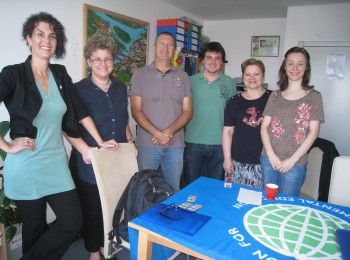 On June 14th he visited FEE Serbia office, where he had the first meeting with EASD core team, including National FEE Mentor Andjelka Mihajlov, National Blue Flag Program Coordinator Sandra Radunovic and Assistant to National Eco-Schools Coordinator Dragana Grujicic.
On June 14th he visited FEE Serbia office, where he had the first meeting with EASD core team, including National FEE Mentor Andjelka Mihajlov, National Blue Flag Program Coordinator Sandra Radunovic and Assistant to National Eco-Schools Coordinator Dragana Grujicic.
In order to be informed of Eco-Schools Program implementation, he visited school “Drinka Pavlovic” , applied for “Eco-School” award and waiting for Jury decision. Dedicated teachers and director presented how the school is implementing program.
On meeting in the premises of Tourist of Organization of Serbia, members of FEE National Council and ministries competent for environment and tourism representatives have constructive discussion with Mr Epikmen, focused on his advice related to Green Key Program implementation and plan of FEE Serbia to become FEE full member in 2014.
On June 15th, he has site visit to 2013 Blue Flag Beach (Ada Ciganlija-Sava lake) and participated in ceremony for Blue Flag 2013 season opening.
Minutes from Monitoring visit are in the Gallery.
Participation at UNEP Global Major Groups and Stakeholder Forum, Global Ministerial Environment Forum and High-Level Gender Forum
Environmental Ambassadors for Sustainable Development participated at the “Global Major Groups and Stakeholders Forum (GMGSF-14)”, and “The First Universal Session of the Governing Council/ Global Ministerial Environment Forum (GC-27/GMEF),” Nairobi, 16-22 February 2013. Ministers meeting for the first time under universal membership of 193 member states- again as a result of the decisions taken and adopted last year at Rio+20 and the UN General Assembly later in the year- adopted a welter of other decisions relating to the way UNEP will operate and work as the global platform for environmental policy-making and action over the coming years and decades. Governments called for the transformation of the existing Governing Council into a UN Environment Assembly of UNEP and to build stronger links between UNEP’s science-based Global Environment Outlook process and its ministerial meetings – further implementing the call by member states at Rio + 20to strengthen the science-policy interface.
Among the wealth of other decisions taken at the first Universal Membership of the UNEP Governing Council were: 1. A UNEP-led consortium will host and coordinate the Climate Technology Centre and Network (CTCN) which will be the implementing arm of the Technology Mechanism of the UN Framework Convention on Climate Change (UNFCCC), 2. The CTCN will work on leap-frogging the technical and financial hurdles to the even greater take-up of clean and renewable energies to low carbon tranportation and energy efficient buildings, 3. Full operationalization of a decade-long initiative to decouple economic growth from unsustainable use of natural resources and pollution generation-the 10 Year Framework of Programmes for Sustainable Consumption and Production Patterns (10YFP for SCP), 4. The UNEP-hosted initiative will assist countries in areas from sustainable public procurement, lifestyles and education to sustainable buildings and construction and sustainable tourism, including ecotourism – again bringing from outcome to implementation other key aspects of the Rio+20 Future We Want, 5. Governments also decided to convene in October this year an intergovernmental diplomatic conference to formally adopt the Minamata Convention on Mercury that was agreed in January in Geneva under a UNEP-facilitated negotiation-again a further implementation of the Rio+20 outcome document.
Over 1300 participants from 147 countries, including 80 ministers, representatives of UN agencies, international organizations, academia, NGOs, business and industry, and women and youth organizations attended the first Universal Session of the GC following the decision of the United Nations General Assembly to strengthen and upgrade UNEP, as called for in the Rio+20 outcome document. Delegates adopted 13 decisions, on inter alia:
– the Intergovernmental Science-Policy Platform on Biodiversity and Ecosystem Services (IPBES);
– coordination across the UN system, including the Environment Management Group (EMG);
– oceans;
– sustainable consumption and production;
– the green economy in the context of sustainable development;
– advancing justice, governance and law;
– state of the environment; and
– chemicals and wastes.
The GC adopted a decision on institutional arrangements that, inter alia, invites the UN General Assembly to rename UNEP’s governing body “UN Environment Assembly,” and provides that the body “will ensure” the active participation of all relevant stakeholders and explore new mechanisms to promote transparency and effective engagement of civil society in its work and that of its subsidiary bodies, inter alia, by: developing by 2014 a process for stakeholder accreditation and participation that builds on the existing rules of procedure and takes into account the inclusive modalities of the Commission on Sustainable Development (CSD) and other relevant UN bodies.
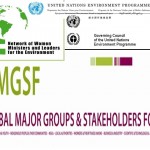
The day before the Governing Council got underway, the Network of Women Ministers and Leaders for the Environment (NWMLE) and UNEP hosted the second High-Level Gender Forum. Prof Andjelka Mihajlov participates, by invitation to “Gender Forum” as a member of the “Network of Environmental Women Ministers and Leaders”, as the former Minister for Protection of Natural Resources and Environment. The forum participants called upon ministers and environmental leaders to have dedicated officials for coordination of related gender and environment programmes and agreed to send a consolidated proposal on gender actions to be forwarded for consideration by UN Secretary General’s High-level Panel of Eminent Persons on the Post 2015 Development Agenda. The women ministers also requested nations to support the ratification of the Minamata convention on Mercury, which opens for signing in October.
More about meetings at www.unep.org . Moments from EASD participation are in Galleries of pictures. These activities are foreseen as the important international cooperation activities.
Prior to this, organisation participate at Rio+20 Conference.
Summer Eco-School
“Environmental Ambassadors for Sustainable Development”, in cooperation with City of Sombor administration – Department of Public Services and Utilities organised Summer Eco-School in UNESCO Biosphere Reservate Golija (MAB – UNESCO) – Studenica (27-31 August 2012). Participated students from Sombor attending different faculties. Lectures and educative workshops include concept of protection of natural and cultural heritage within biosphere reservate, biodiversity and sustainable use of plant resources, Sustainable tourism and possibilities for development of rural areas, Ecological footprint, as well as walking tours (“Learning by Walking”). Ecological footprint is developed through support by UNESCO, and represents educational signal and courses.
Environmental Education for students from Sombor
“Environmental Ambassadors for Sustainable Development”, in cooperation with City of Sombor administration – Department of Public Services and Utilities organised Summer Eco-School “2012 Golija Summer Eco-School” in UNESCO Biosphere Reservate Golija – Studenica (27-31 August 2012). Participated students from Sombor atending diferent faculties. Lectures and educative workshops include concept of protection of natural and cultural heratage within biosphere reservate, biodiversity and sustainable use of plant resources, Sustainable tourism and possibilities for development of rural areas, Ecologycal footprint, as well as walking tours (“Learning by Walking”).
In December 2013, 3 workshops were held for preschool children in Sombor.

